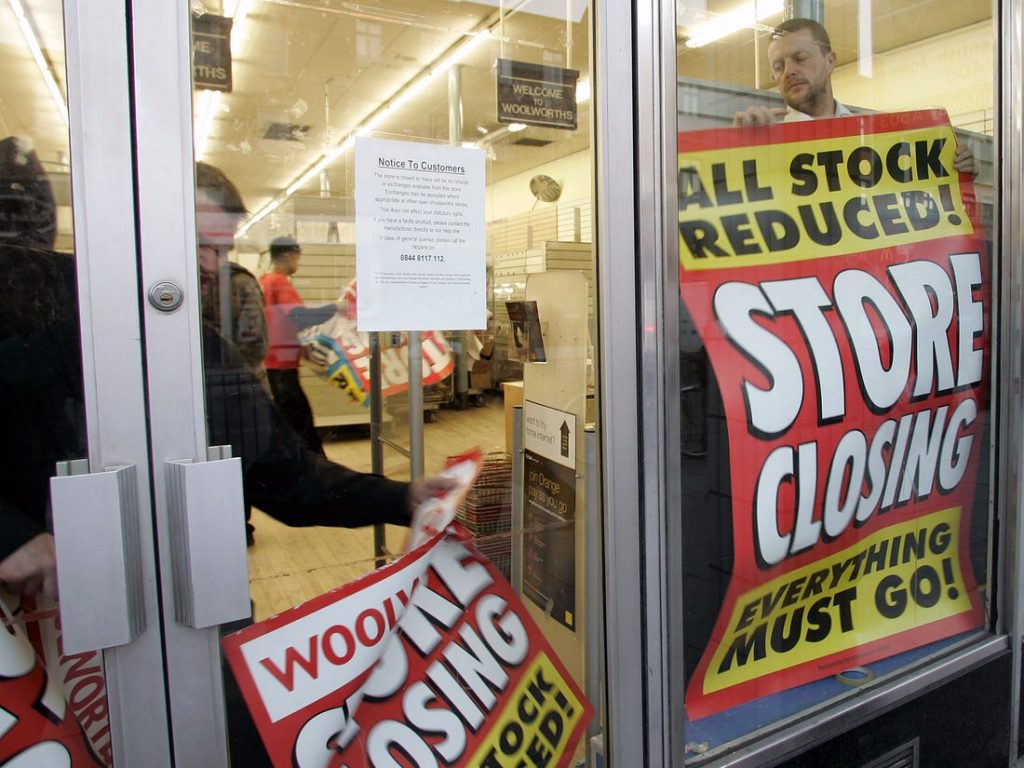
Store Closing
JoAnn Stores
Move over arts and crafts – technology is hitting Joann flagship stores hard. The company has been struck by the shift and presence of technology that American craft store Joann is finding itself having to downsize. Founded in 1943, Joann was a specialty fabric and craft retail chain. In 1998, JoAnn acquired the House of Fabrics, and it began to expand its offerings. As of 2019, it has been trying to stay competitive by having a monthly subscription partnership with GoldieBox. The boxes are meant to target children and help them develop their STEM skills.
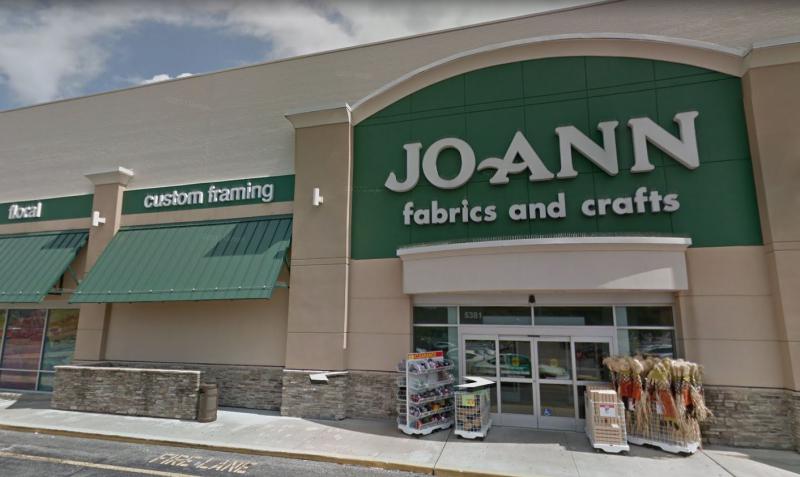
JoAnn Fabrics
Petco
The original mail-order business is Petco. Founded in 1965, it presently has over 1,500 stores between Mexico and the United States. Included within those 1,500 stores are its 85 “Unleased by Petco,” which are its smaller and more community-based pet stores. Based on the philosophy of “Think Adoption First,” Petco found themselves in a legal spat in 2010. It paid nearly $1.75 million consumer protection lawsuit. The lawsuit was a result of customers filing a complaint that they were being overcharged, but also their pets were receiving improper pet care.
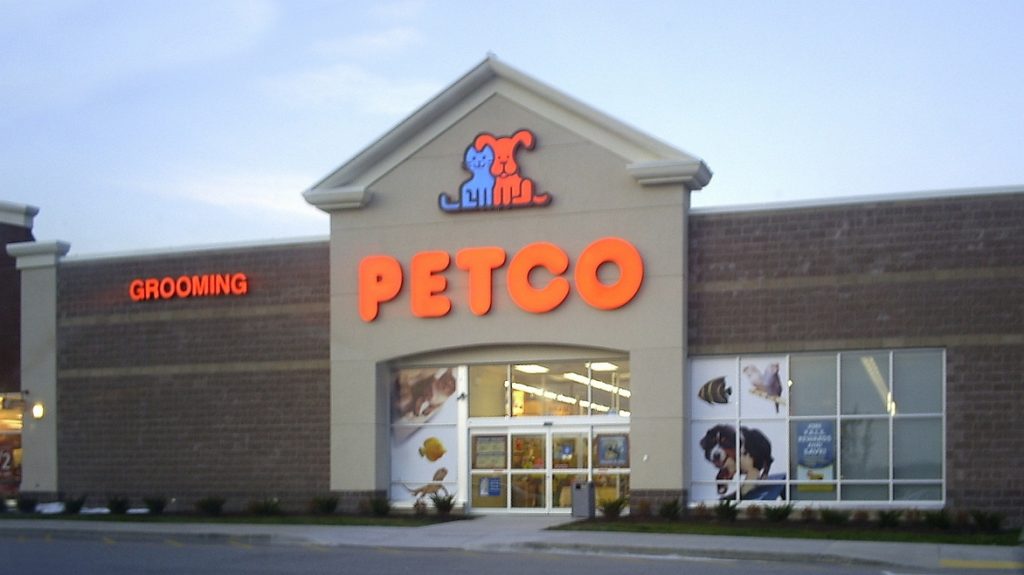
Petco
Pier 1 Imports
Specializing in imported home furnishings and décor, Pier 1 Imports was founded in 1962 in San Mateo, California. This popular store offered many American households an alternative to modern and often dull furniture. With Pier 1, families could bring pieces from around the world into their home. Unfortunately, Pier 1’s unique home furniture would not be enough to keep them afloat. Presently operating 973 stores between Canada and the US, the company is planning to close another 145 before the end of 2019. Currently, it has already closed 30 stores.
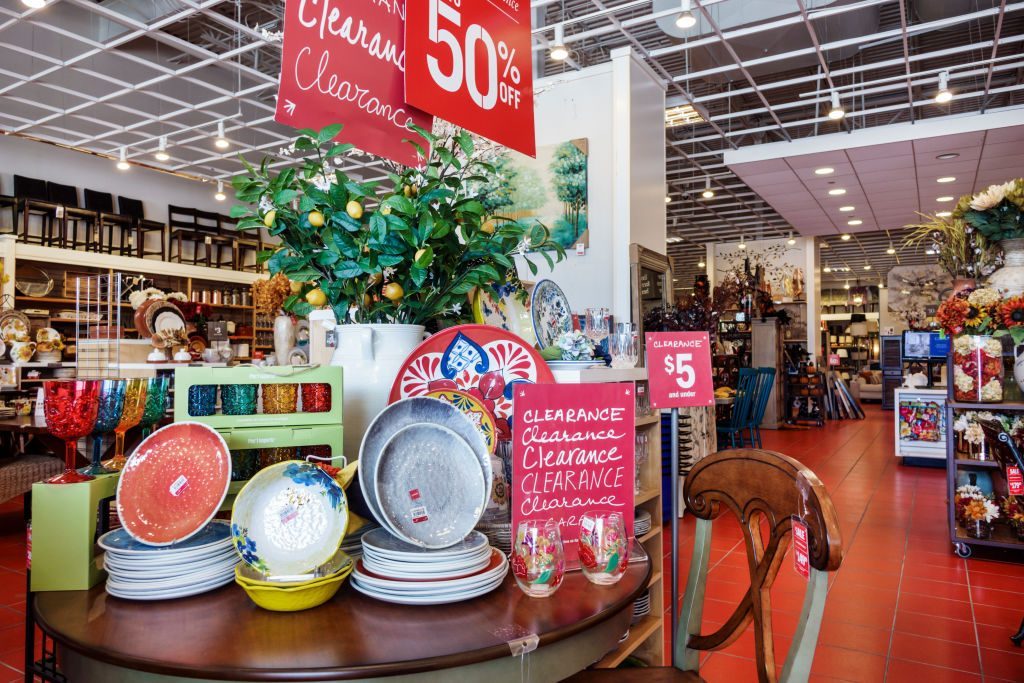
Pier 1 Sales
TOMS
This for-profit company was founded in 2006 in Playa Del Rey, California. TOMS products were inspired when its founder, Blake Mycoskie, was in Argentina as a competitor on the popular show, The Amazing Race. He was inspired to create a simple slip-on canvas shoe. This simple idea eventually was picked up, and suddenly stores around the world were selling TOMS shoes. Unfortunately, TOMS would become a major fad and would slowly find its shoes and products falling out of many retail stores.
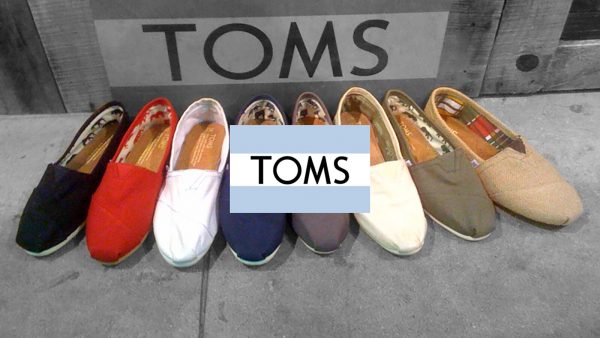
TOMS
J. Crew
J. Crew is a famous All-American brand that offers everything from women, men, and children’s clothing. It also has a line of swimwear, outerwear, bags, and jewelry. In 2015, the company found its women’s’ wear was struggling to keep an edge over their competitors. Two years later, the brand cut 250 jobs, and then that same year, the company faced over $567 million in debt. J. Crew is presently undergoing a massive change and are seeking to sell its products online.

J. Crew
J.C. Penney
It is considered one of the oldest brands on our list: J.C Penney, or JCPenney, as it is most popularly known. JCPenney was founded in 1902 in Wyoming, as a department store chain. On top of selling its brand products, it also sold other brands as well. With the growth and popularity of online shopping, the company is trying to maintain its identity as a one-stop-shop. Unfortunately, in May of 2019, they reported a $154 million loss in the first fiscal.
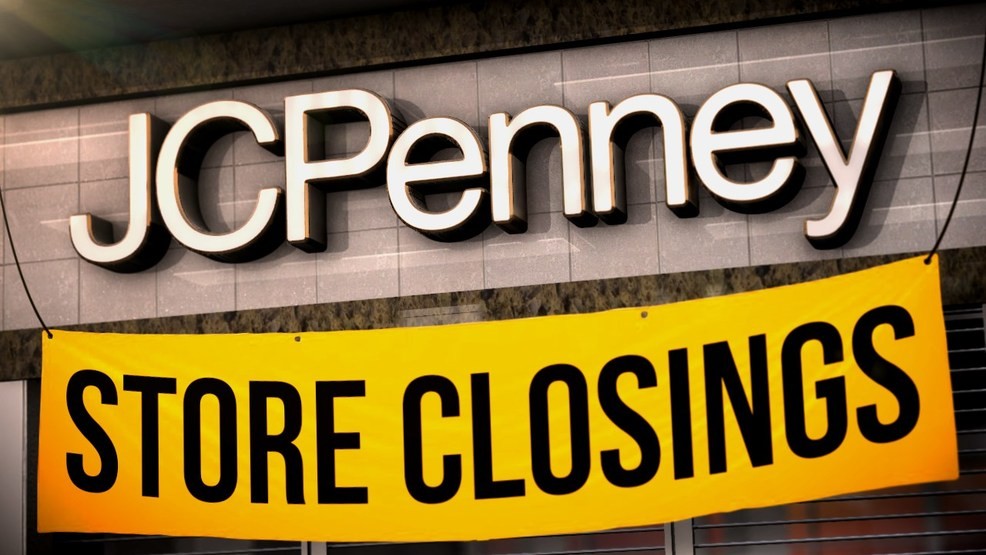
JCPenney Store Closing
Serta
Serta, a mattress manufacturer, is struggling to continue. With new mattress brands such as Endy and Casper entering the mattress market, Serta is struggling to compete. Formerly one of the most prominent mattress brands in the US, Serta has found itself being sold off and partnering with other companies such as an online retailer, Tuft & Needle. Many Serta mattress shops are allowing their leases to expire and just closing stores left, right, and center.

Serta Mattress
Guitar Center
Formerly known as The Organ Center, then The Vox Center, before becoming Guitar Center. Founded in 1959, Guitar Center is one of America’s largest music retailer. There are presently over 269 stores across the United States. Though things are slowly starting to look up for this little music shop- who knows when Guitar Center may find itself hitting a bit of a sales slump. It is a good thing that music is here to stay and Guitar Center is too, at least for the time being.
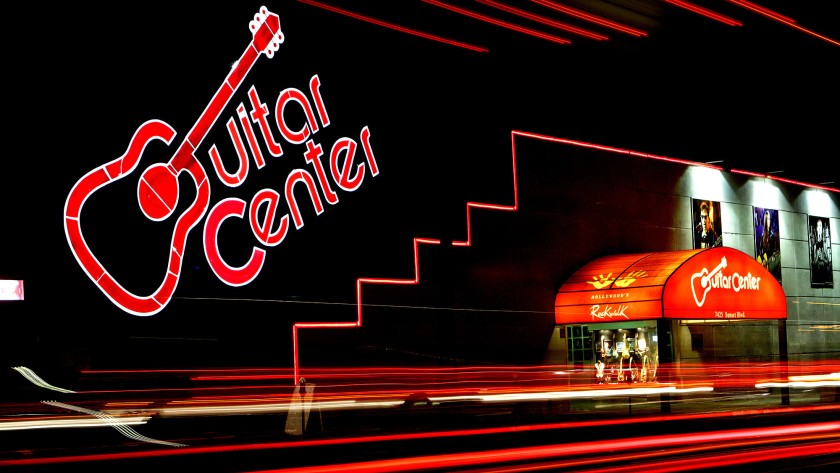
Guitar Center
Notable Mention – RadioShack
Founded in 1921 by Dutch brothers who sold equipment for ham radio operators, we doubt that either brother knew they would become the place for electronics. During the glory days, RadioShack had nearly 7,300 stores and was a popular household brand. RadioShack would file bankruptcy twice, in 2015 and 2017. Eventually, it would close a majority of its stores due to the competition brought on by larger retailers such as BestBuy and Walmart.
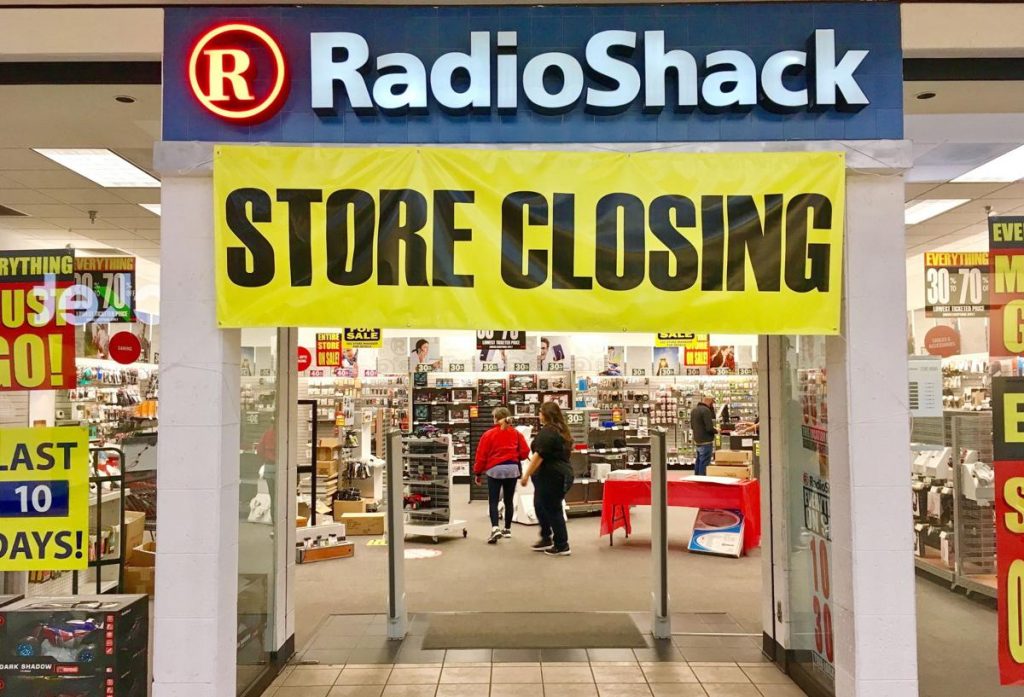
RadioShack
Build-A-Bear
A stuffed teddy bear store that allows customers to build a stuffed bear to their liking is finding itself in big trouble. Founded in 1997, Build-A-Bear would go on to release video games and cartoons. In 2013 the company was accused of being discriminatory to the visually impaired. As of 2018, Build-A-Bear stores are closing one by one. In 2019, it was rumored the company was working in collaboration with Hallmark to develop a Christmas movie that has yet to be released.
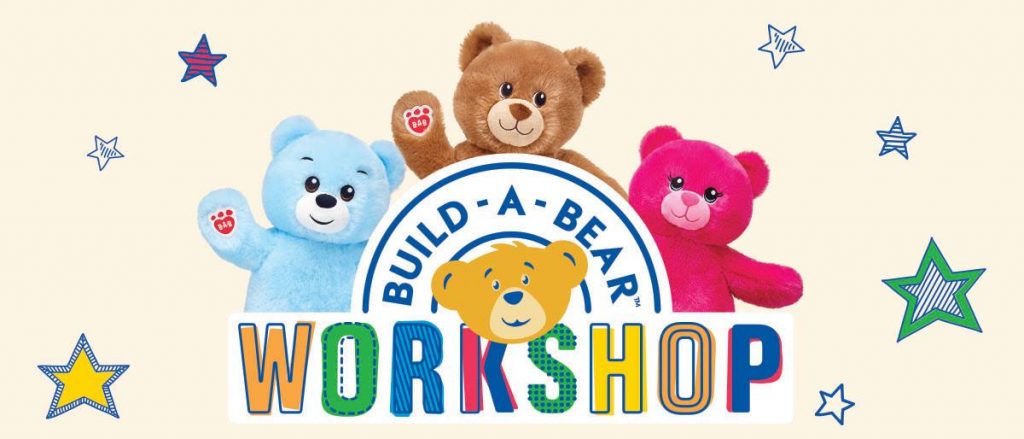
Build A Bear
GNC
What started as a small health food store in Pittsburgh by David Shakarian, has now become the famous GNC health and nutritional store. Specializing in selling vitamins, supplements, herbs, diet, and energy products, GNC has been reporting operating, revenue, and asset loss since 2016. The decrease in GNC value has been a result of the various lawsuits from selling products containing illegal or not FDA approved to not tested pills.
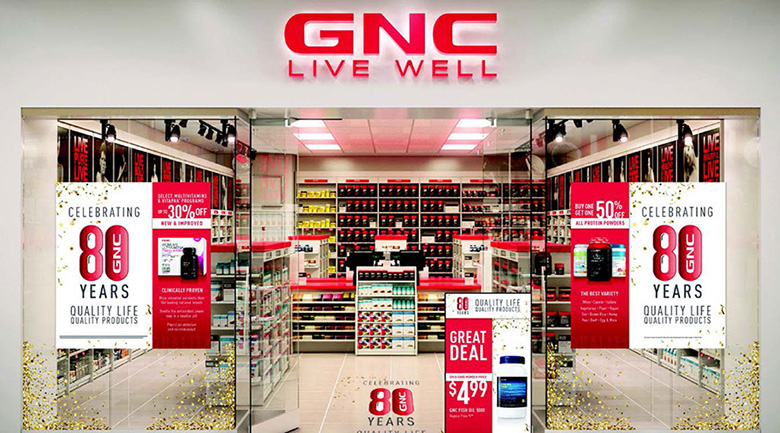
GNC
Signet Jewelers
Founded in 1949, Signet Jewelers is considered the world’s largest diamond and jewelry retailer. Signet owns and operates Zales, Kay Jewelers, and Jared. Though parent company Signet is struggling financially, it is also facing plenty of courtroom drama. In 2017, the company had to deal with a civil lawsuit after being accused of being sexist towards its female employees. In 2019, the company was accused of signing up clients without their permission. Signet was forced to pay $11 million to the Consumer Financial Protection Bureau and the New York Attorney General’s office.
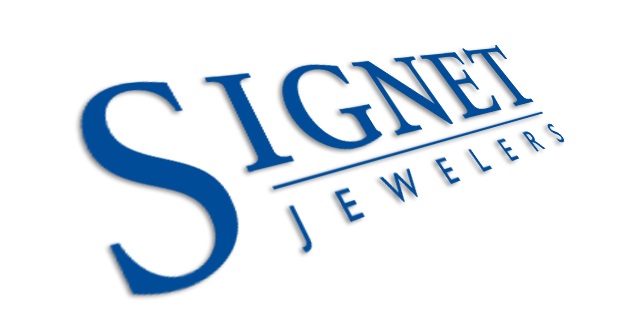
Signet
Sears Hometown and Outlet Stores
Sears Hometown and Outlet Stores came out of the closing of Sears. It is an American retail company that specializes in home appliances, lawn and garden equipment, as well as mattresses and tools. There are presently 639 stores across the US, Puerto Rico, Bermuda, and Canada. To help the struggling outlet store, Sears Hometown and Outlet Stores were purchased by Transform Holdco LLC. In October 2018, Sears Hometown and Outlet stores filed for Chapter 11 bankruptcy protection.
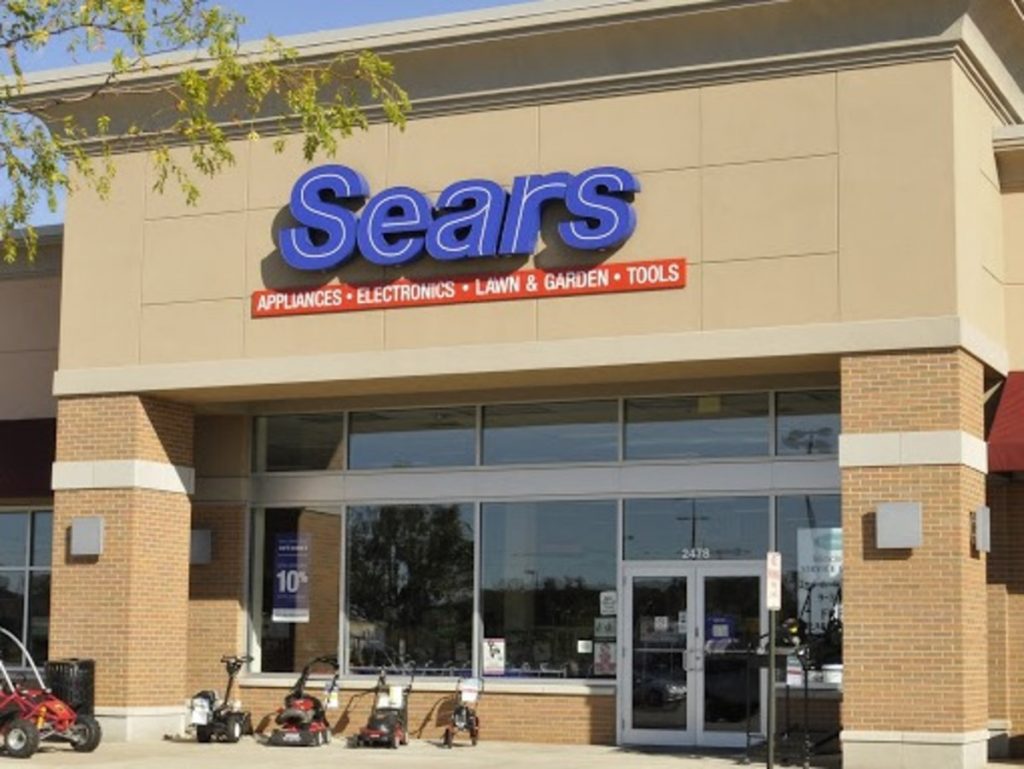
Sears Hometown And Outlet Stores
Kirkland’s
Kirkland is a Tennessee American retail chain that specializes in home décor, furniture and accessories. With 434 stores in 37 states, it has diversified itself to have an online presence and an online store. As of 2005, Kirkland has been reporting profit losses with attempts to improve its state through lease-related accounting and restructuring. The company’s net income is currently at $5.3 million, which is down from 2017.
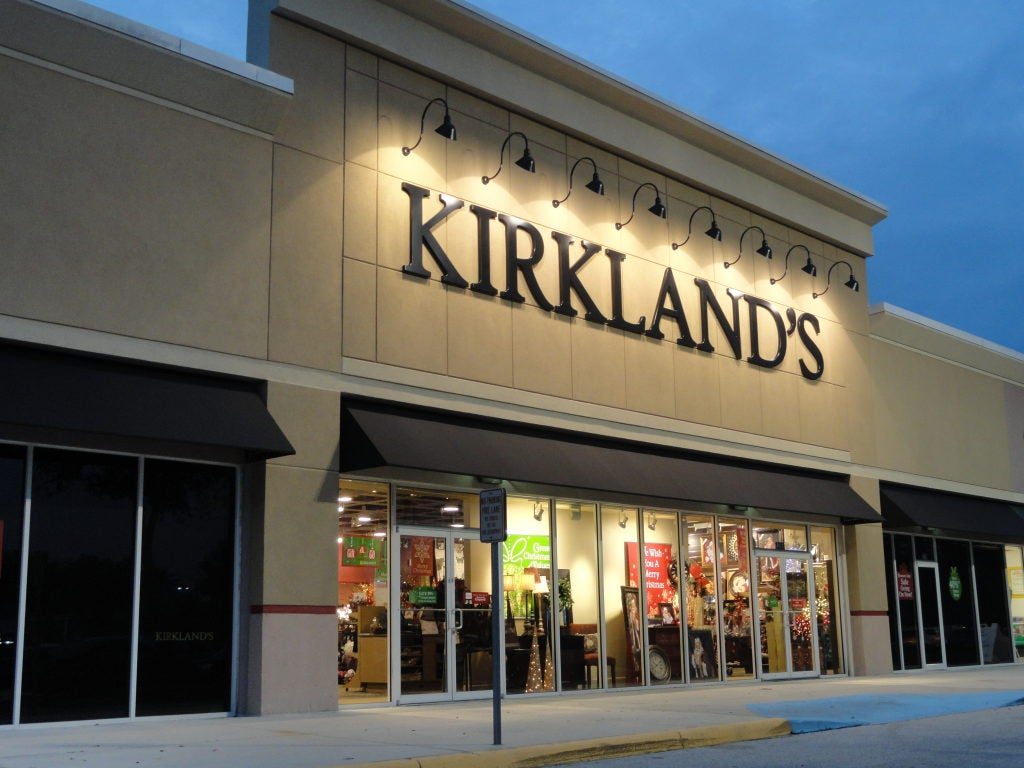
Kirkland’s
Stein Mart
Stein Mart is an American discount department store that was founded in 1908 in Mississippi. As of March 2019, there are currently 283 stores. In addition to selling clothing, Stein Mart sells home décor and accessories at a discounted price. Since 2018 the company has been attempting to explore alternatives to maintaining afloat in a world evolving from traditional retail shopping to online shopping. In 2016, the company reported a loss in operations, net, and equity.
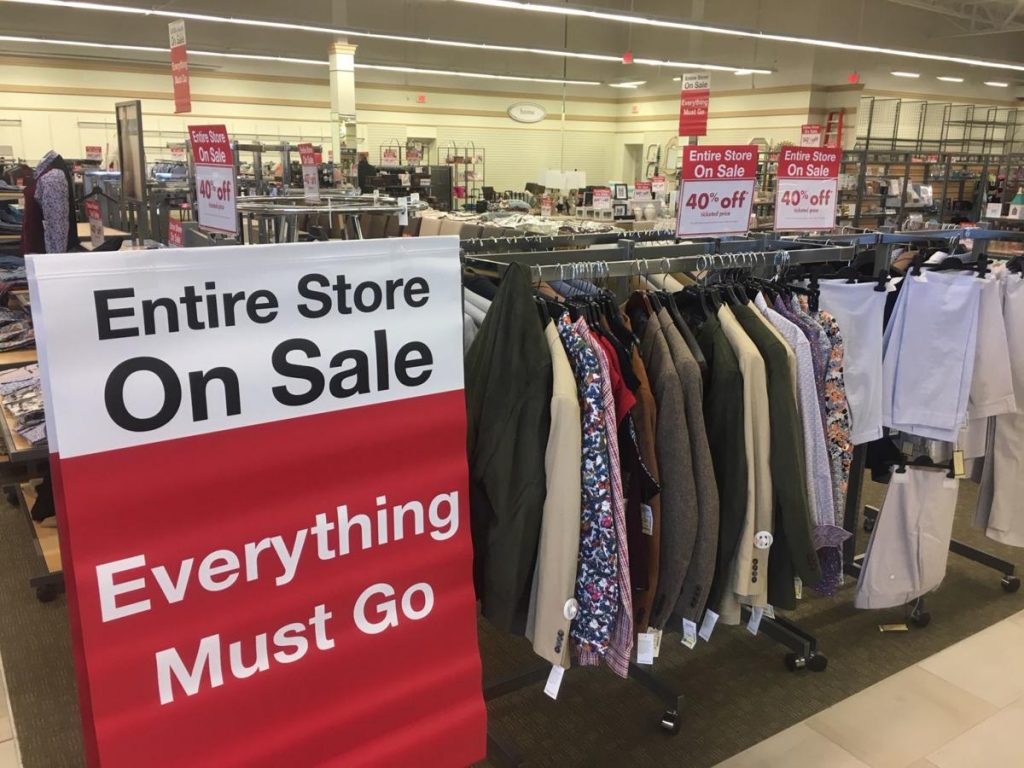
Stein Mart Closing
Hudson’s Bay
Considered one of North America’s oldest brands, Hudson’s Bay has been in operation since 1670. There are presently 90 stores in total, and service both Canada and the Netherlands. Hudson’s Bay sells everything from clothing to footwear and bedding. Of the 90 stores, the 15 based in the Netherlands are scheduled to close by 2019. However, the fate of the European stores is not entirely the same in Canada as it is expected to open new shops.
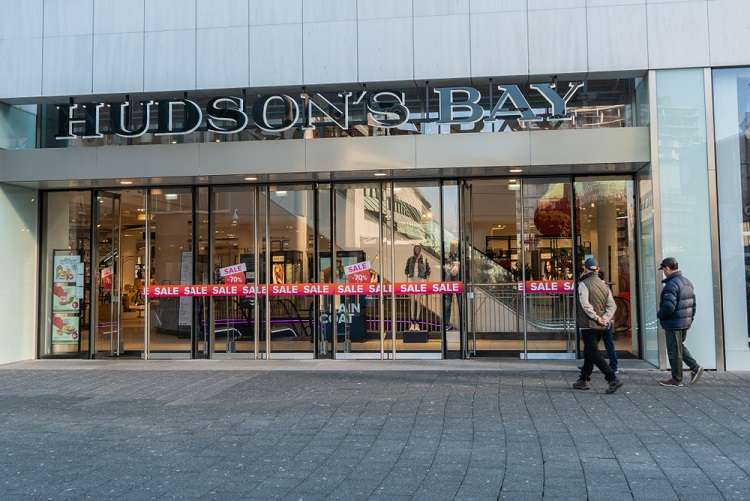
Hudson’s Bay In Netherlands
J. Jill
This American retailer, which specializes in womenswear, has seen its share drop nearly 53% since 2017. The issues experienced by J. Jill has been blamed on the designs, color, and old-school approach to marketing and sales. While other retailers have embraced the world-wide-web, J. Jill has shown it cannot adapt to the evolving times.
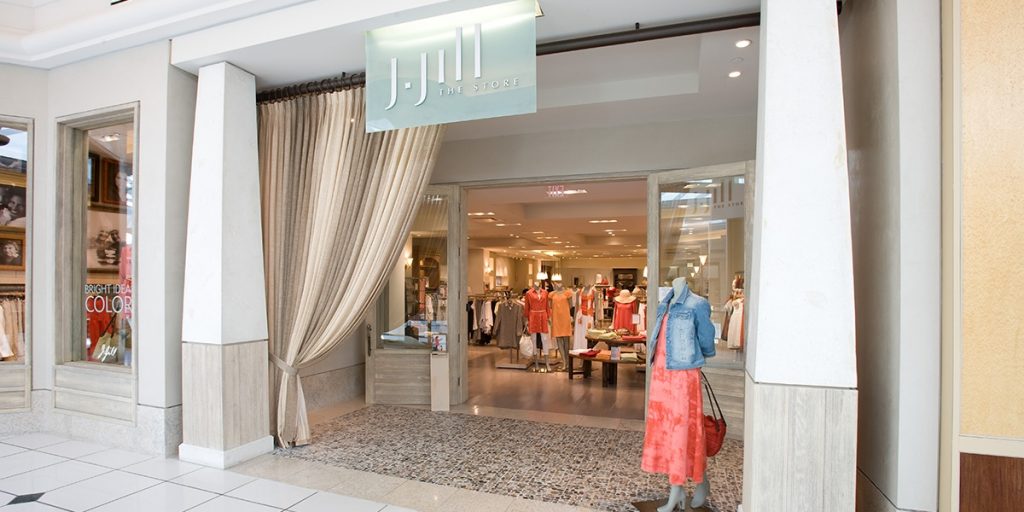
J. Jill
Camping World
Camping World is an American company that specializes in recreational vehicles (RVs) as well as camping supplies — founded in 1966, as of 2018, there are 227 stores around the US. It also offers mail order and online store. Camping World has been considered one of the world’s largest supplier in RV repair parts. Last year it reported a loss in operations, net income, and total equity. To help with the brand, it has attempted to create greater exposure through branding at NASCAR and other sporting events. It seems like camping is no longer a favorite American past time.
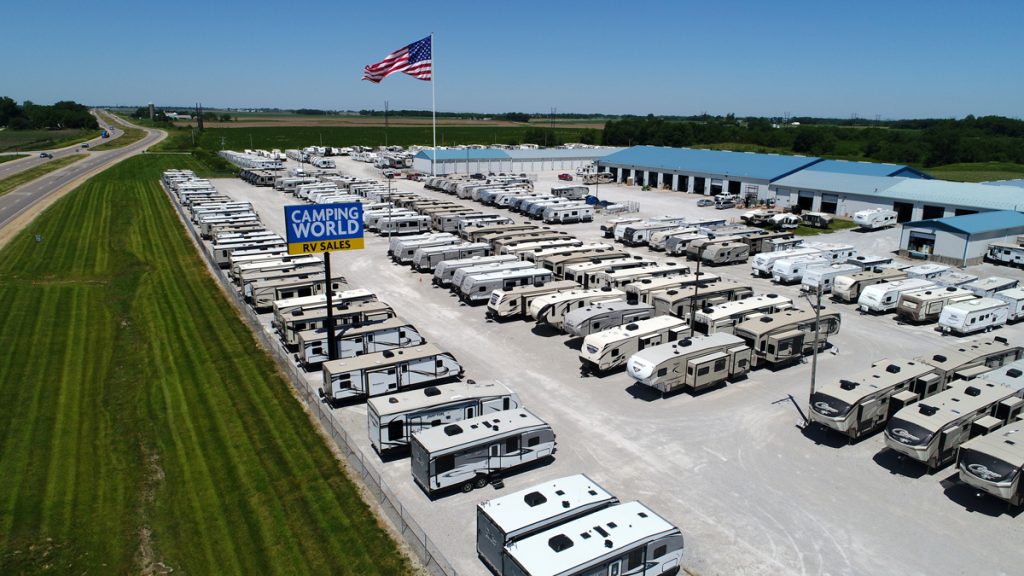
Camping World
Rite Aid
Formerly known as Thrift D Discount Center until 1968, Rite Aid is an American drugstore chain. While it makes our list of companies at risk for bankruptcy, in 2018, the company was ranked 94 as one of the largest US corporations by total revenue. While it reported an increase in revenue, it also reported losses in operations, assets, and equity. Odd a company like Rite Aid has been struggling given everyone needs medicine and yet – things are not looking “rite” for Rite Aid.
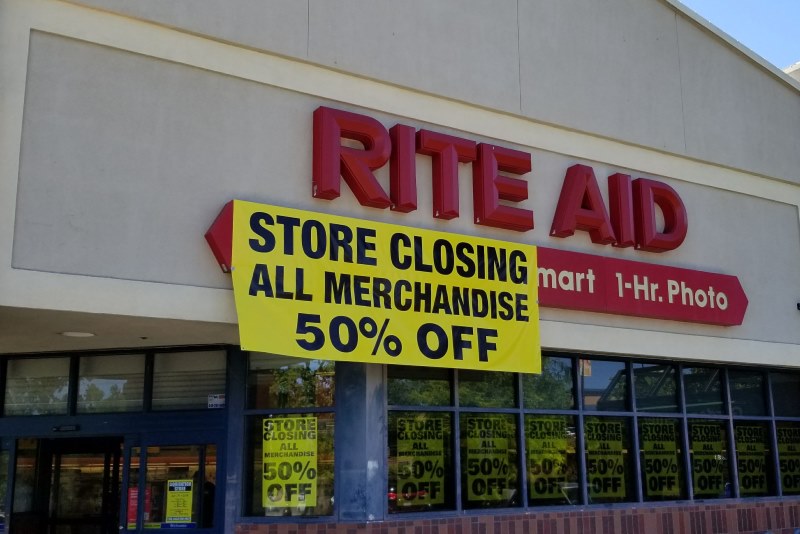
Rite Aid
Destination Maternity
Considered the world’s largest designer and retailer of maternity wear, Destination Maternity is finding itself in hot waters. As of 2018, Destination Maternity has over 1,000 stores in the United States, Puerto Rico and Canada. Fun fact, Destination Maternity is the store flagship for Motherhood Maternity and A Pea in the Pod. In October of 2019, Destination Maternity filed for Chapter 11 Bankruptcy, and it is beginning the process to close 183 stores in the US. Guess the baby-making business is about to find a shortage in shops.
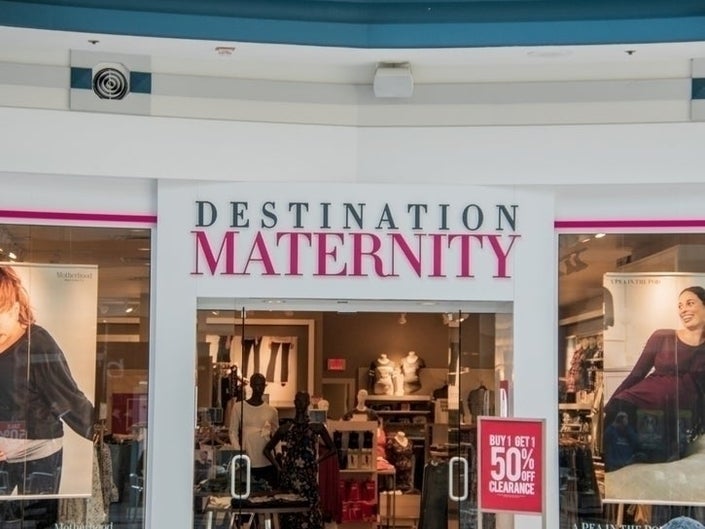
Destination Maternity
99 Cents Only
Offering discount products – it seems odd that a shop that is available to the masses could go bankrupt and yet, here we are. Who could be competition to the 99 Cents Only store? In the US, the 99 Cents Only store is in competition with Dollar Tree and Dollar General. Who knew a whole cent could make such a difference. In 2017 there was a $33.6 million-dollar loss, followed by another $8.8 million the following quarter.
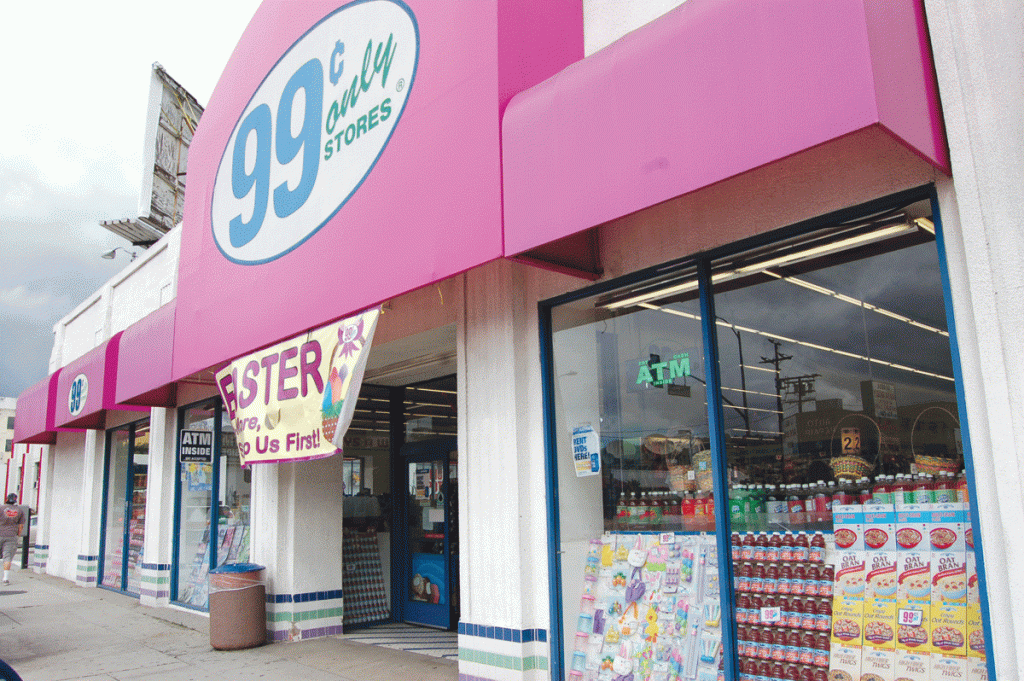
99 Cents Only
Fred’s Pharmacy
Fred’s Pharmacy, also known as Fred’s, is a retail chain that operates in the southeastern part of the US. As of June 2019, there are 396 pharmacies, with 155 being pharmacies while the others are general discount merchandise. In September of the same year, the company filed a Chapter 11 and are presently seeking to liquidate their assets as well as their fixtures. It looks like another pharmacy has bit the dust.
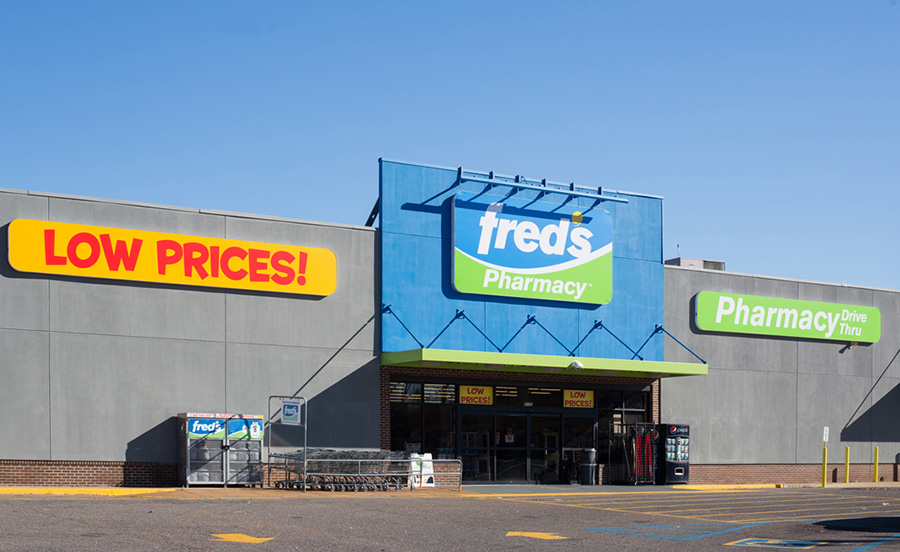
Fred’s
Notable Mention – Linens ‘n Things
This homeware and home accessories store saw itself struggle to stay competitive with department stores such as Sears, Macy’s, and even furniture giant, Ikea. Founded in 1975 in New Jersey, Linens ‘n Things had 571 stores between the US and Canada. Due to struggles in earning a profit, it decided to file for bankruptcy. By 2008 the company had gone out of business and liquidated all of its assets.
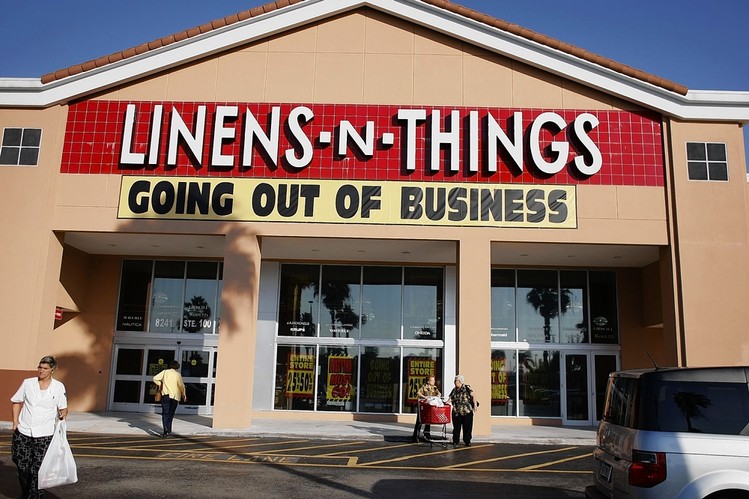
Linens ‘n Things
Ascena Retail
Ascena is the head company for shops such as Dress Barn, Ann Taylor, and LOFT. In 2019 Ascena made the bold move to close 25% of its stores. In an attempt to help the downward spiral, Ascena hired a new chief; however, that made no difference. Since 2017, Ascena has reported a drop in its sales with no signs of improving any time soon. Guess the next step for these failing shops is to liquidate.

Ascena Building
Office Depot
How can you tell that technology and computers are dominating? Simple – the once-popular back to school destination, Office Depot is struggling to the point of nearing bankruptcy. In 2017 the company reported a 7% loss, bringing it down to a slump of $10.2 billion. Company CEO Gerry Smith has said that to improve numbers, it would be moving from retail sales to a more service orientated store. The services include a print shop for businesses.
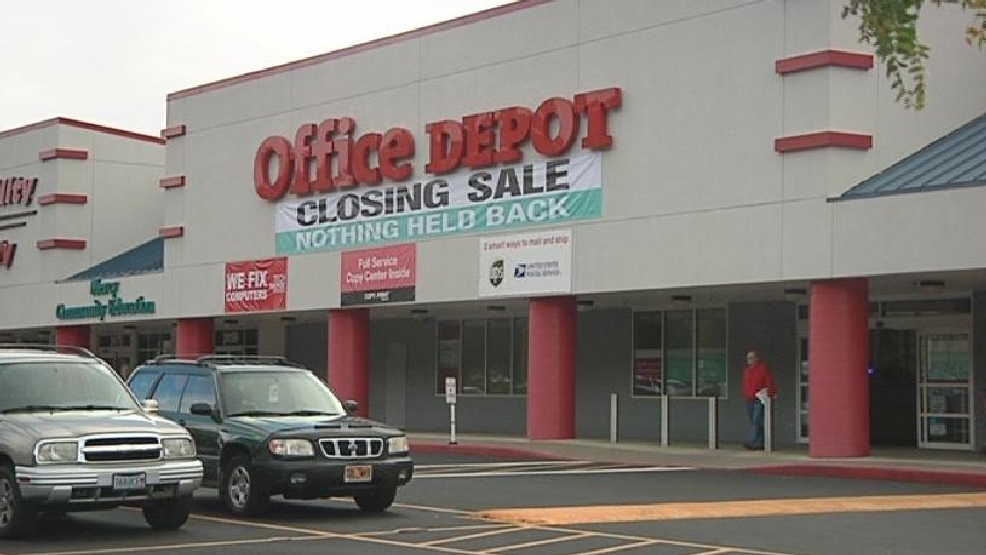
Office Depot Closing
Vitamin Shoppe
Just like its business counterpart GNC, Vitamin Shoppe is seeing its sales and profits dropping. In 2017 the company saw an 8.5% drop in its sales. While it is attempting to move to e-commerce, the business is still struggling to compete with other supplement competitors and health stores. In a last-ditch attempt, Vitamin Shoppe is looking to stay relevant with delivery services, product expansion, and special events.

Vitamin Shoppe
Neiman Marcus
This retail luxury store saw a 5% drop in its sales in 2017. Since the downturn, Neiman Marcus has attempted to try various marketing and business approaches to try to improve their overall sales. Unfortunately, it seems the interest in luxury brands in the US is dropping while interest in off-brand names is growing. Hudson’s Bay, another unfortunate company nearing the end, thought about buying out Neiman’s; however, it decided to withdraw the offer.
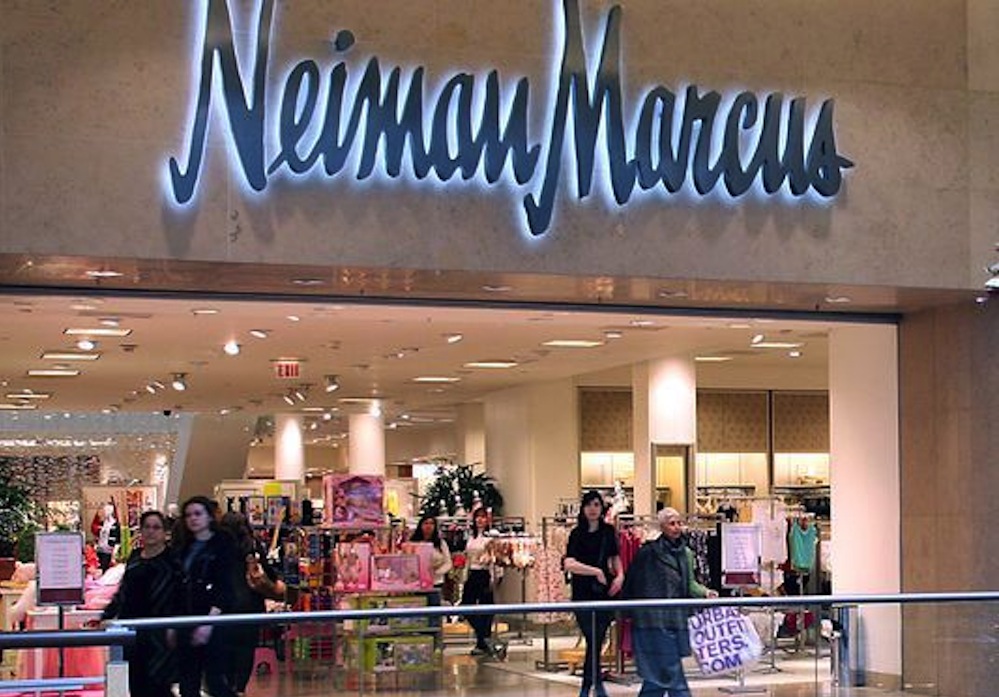
Neiman Marcus
bebe
When creative director Neda Mashouf left the company in 2007 for personal reasons, bebe found its sales begin to decline. The media would uncover that Neda’s reason for leaving was because she had filed for divorce from her husband and bebe founder, Manny Mashouf. In 2017, the company paid $65 million to close many of its physical stores and are looking to focus on an e-commerce approach. It seems like women might have to find a new store to go and visit when it comes to finding their perfect night-out outfit.
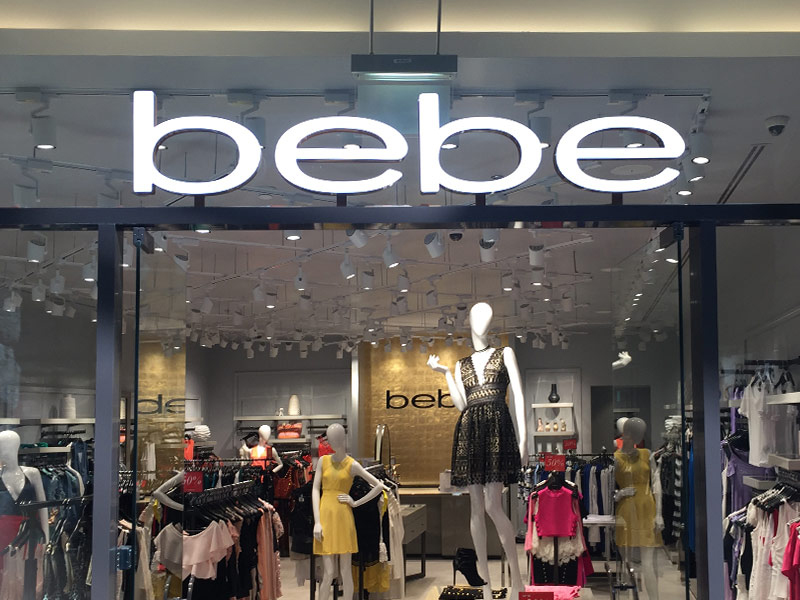
Bebe
Notable Mention – Payless Shoes
The affordable shoe and accessory store, Payless, found itself filing for bankruptcy in 2017. It was not long after this decision that Payless had closed down more than 600 of its physical stores. During the closing, it was selling products and merchandise at nearly 90% off. Though closing down 600 stores would hurt some brands, there has been word through the grapevine that Payless is looking to make a comeback. Could Payless pull a phoenix and rise above the ashes?
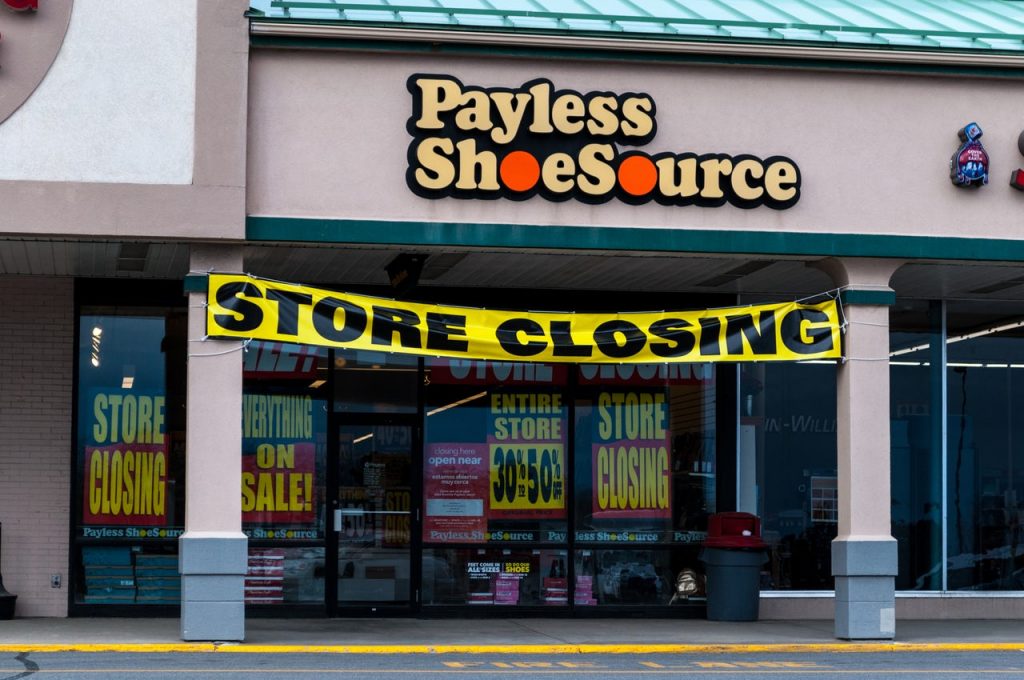
Payless Shoes
Nine West
Nine West was a high fashion footwear retailer that was named after its first location at the Solow Building., located at 9 West 57th Street in New York. Founded in 1983, the store had grown into a major shoe retailer. With shops in Hong Kong, New York, and Canada, the shop would eventually have 800 shops in over 57 countries. Its success would be somewhat short-lived because, in 2015, they would file for bankruptcy protection. By April 2018, the store ceased to exist and closed all its physical stores.
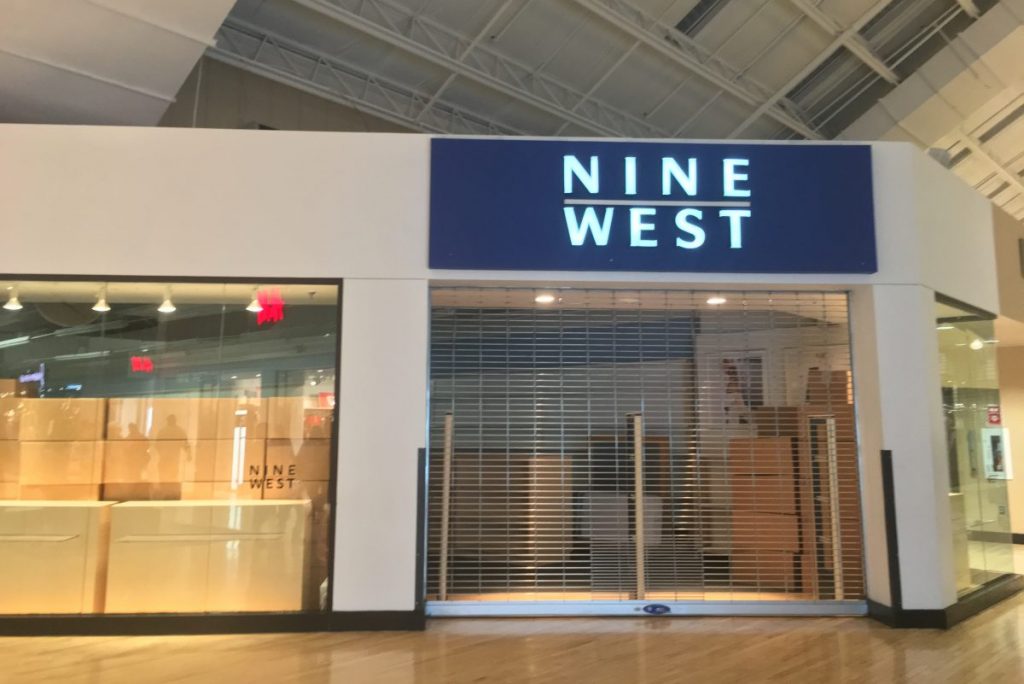
Nine West Closed
David’s Bridal
Specializing in wedding dresses, prom and formal wear, David’s Bridal filed for bankruptcy in January 2019. David’s Bridal has over 300 stores in over 45 states, Canada, the UK and Puerto Rico. Just as the company began 2019 filing for bankruptcy, it was bought out by Oaktree Capital Group. David’s Bridal may have found some investors, but if American teens and brides continue to go with the off-the-rack and non-traditional outfit, David’s Bridal may be back in the hole.
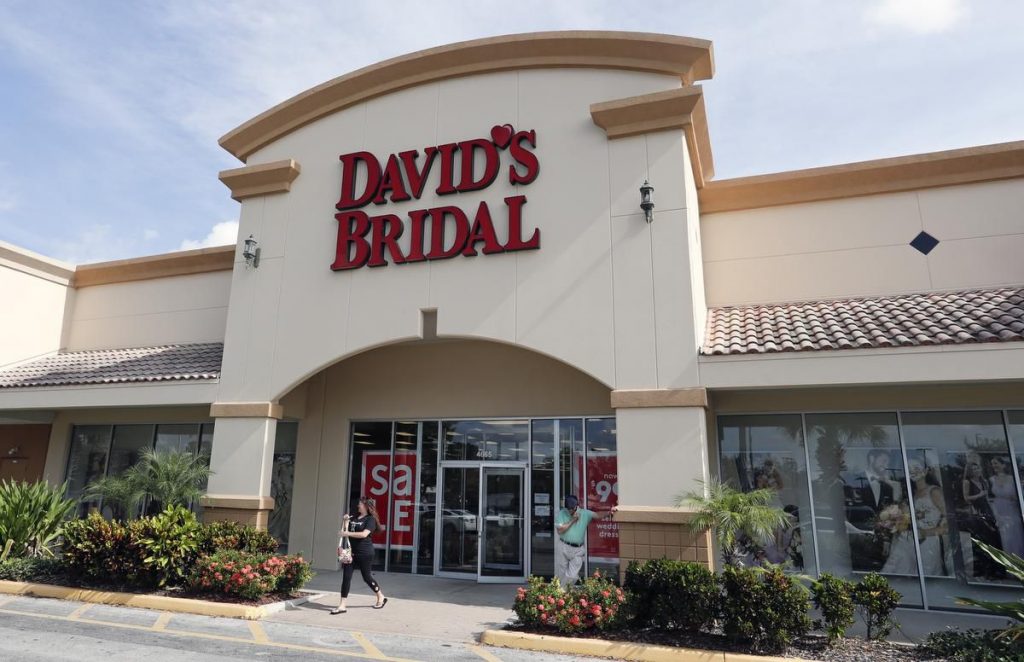
David’s Bridal Sale
As the saying goes, all good things must come to an end, and Bon-Ton is about to see its 100 years of business coming to an end. From 2011 to 2017, the company struggled to pay off its debts and establish stability within its executive team. In 2018 Bon-Ton filed for Chapter 11 bankruptcy and began the liquidation process, as Bon-Ton had not made any profits since 2010. Though Bon-Ton was liquidating assets, behind the scenes, Bon-Ton was teasing consumers with a “Stay Tuned” message. Though they are still in the liquidation phase, who knows if this “Stay Tuned” message means anything.
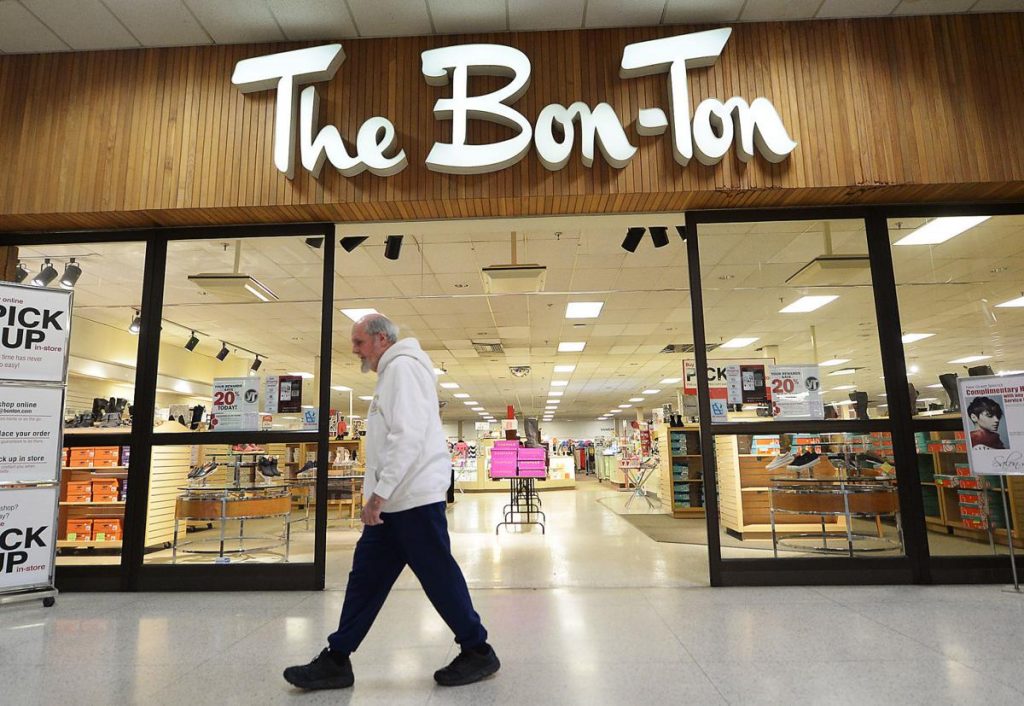
Bon Ton
Claire’s
There isn’t a single girl in the US and Canada who does not know Claire’s. This was every young girl’s dream store that specialized in jewelry and accessories. It also offered an on-site ear-piercing service. Since its opening in 1961, the store would be a piece of many girls’ fondest memories; however, as of March 2018, the company filed for Chapter 11 bankruptcy. To help with the multi-billion-dollar debt, the company made plans to shut down 130 of its stores. It looks like girls will have to make memories somewhere else.
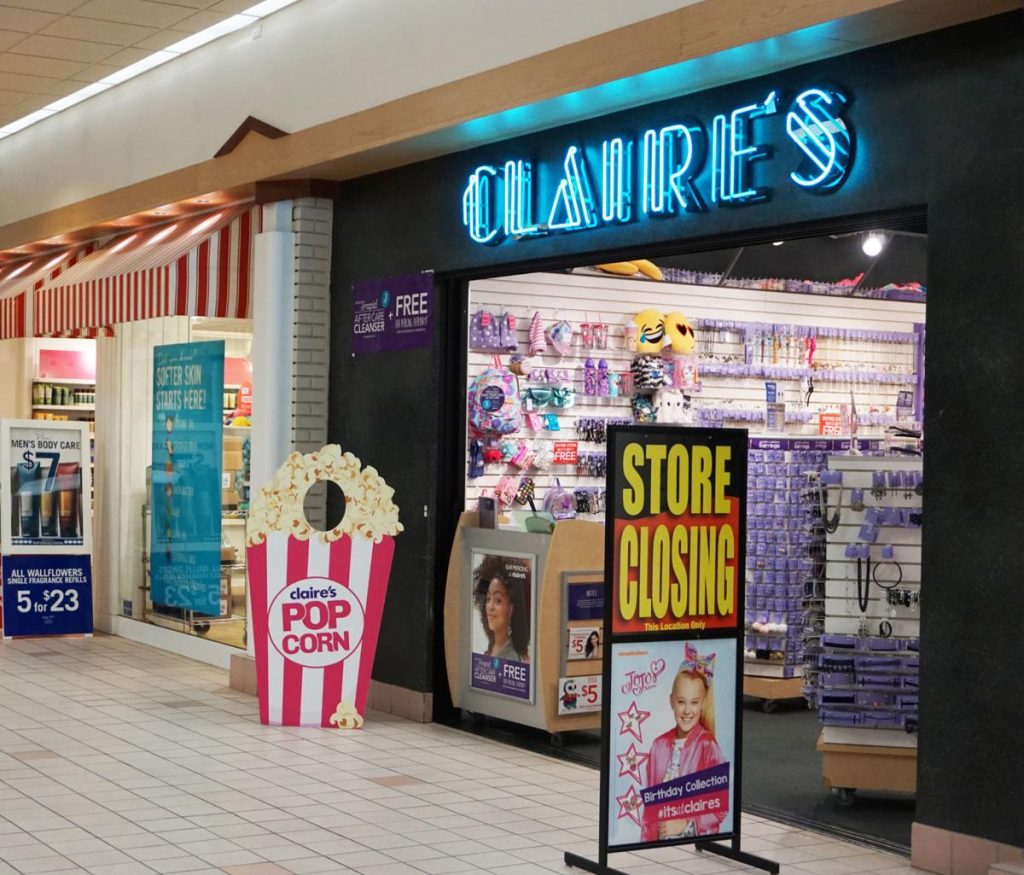
Claire’s Store Closing
Eddie Bauer
This outdoorsy brand founded in 1920 in Bellevue, Washington found itself between a rock and a hard place. The company, which specializes in selling outdoor clothing and equipment, currently has a total of 370 stores throughout the US, Canada, Japan, and Germany. The company initially was a catalogue only brand before opening standalone stores. This would be a decision that would cost the company and brand. By 2006, it was closing nearly 200 stores and attempting to restructure the company for profit. In 2009 the company filed for bankruptcy.
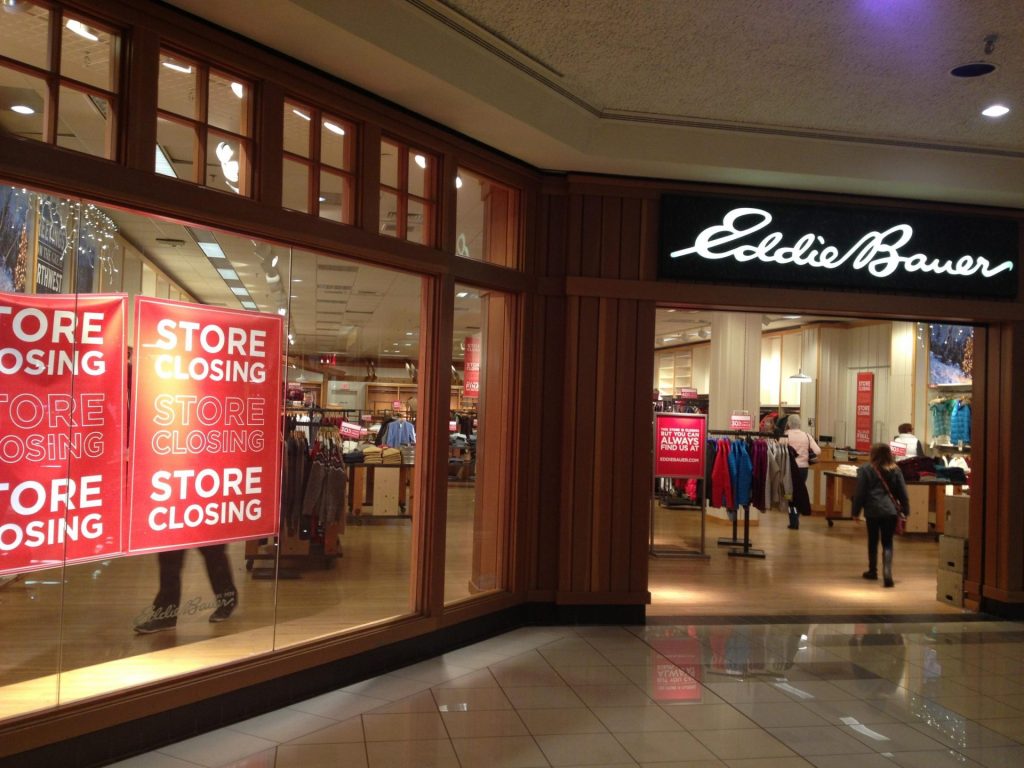
Eddie Bauer Store Closing
Notable Mention – Blockbuster
While we may be listing some companies and brands nearing extinction, it seems only right to acknowledge the stores and brands that once were — our first being Blockbuster. Blockbuster was an entertainment provider renting out movies and video games. Due to the increasing popularity of online streaming services such as Netflix, Hulu, and Disney+, Blockbuster was unable to keep up with the evolution of entertainment and video on demand. So long are those Friday night memories of renting two movies for the price of one.
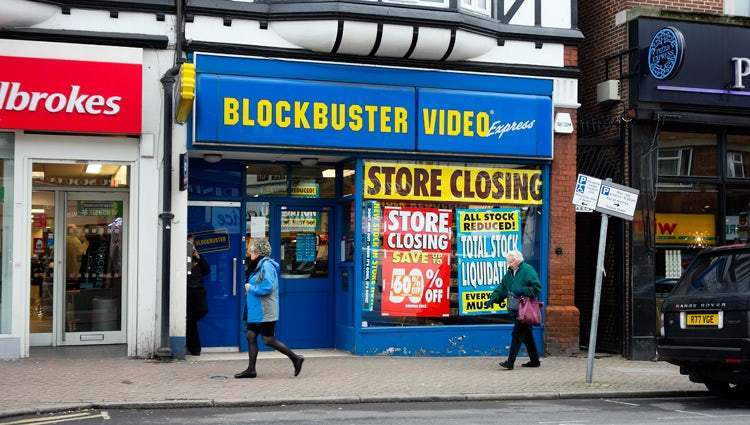
Blockbuster
Toys R Us
2018 was a sad year for children around the US as the famous Toys R Us filed for bankruptcy. Not only did they file for bankruptcy that year, but before the year-end, they had shut down most if not all of their physical locations. In Canada, where Toys R Us also had physical stores, the company was purchased by a private company. So, while the kids in the US find other toy store alternatives, Canadian kids can continue to enjoy the joy and happiness of Toys R Us.
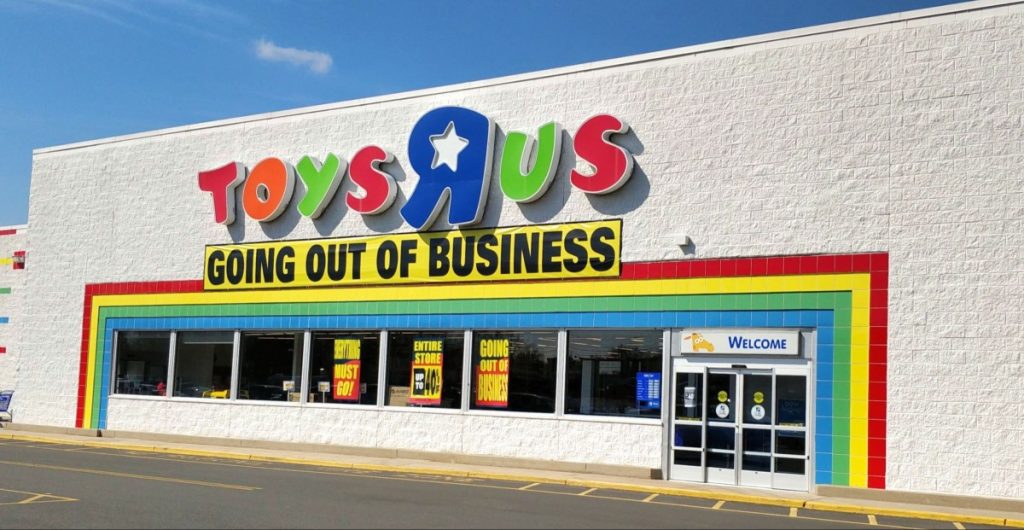
Toys R Us
Gymboree
It almost seemed inevitable that Gymboree would find itself seeking bankruptcy protection at the start of 2019. With Destination Maternity closing down, it just seemed as though kids’ clothing stores would soon follow suit, and they did with Gymboree taking a hit. There is somewhat of a silver lining to Gymboree’s downfall – Children’s Palace, a higher-end children’s clothing store, would purchase the brand and sell their products in their stores. Good to know there will still be a shop for babies to buy onesies.
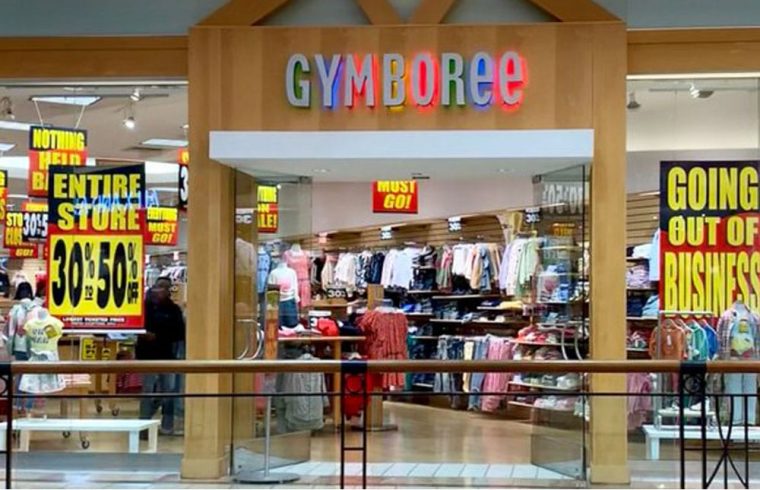
Gymboree
Diesel USA
Once thought of as the brands of celebrities, Diesel fell on hard times. On March 5, 2019, the brand filed for Chapter 11 bankruptcy. To help with the growing deficits, the company decided to close down the physical shops due to a change in consumer shopping habits. Since the filing of the bankruptcy, the brand has managed to sneak its way into the shelves of department stores. Not only is it hanging by a thread, but the brand is hoping that by hosting pop-up shops that there will be a renewed interest.
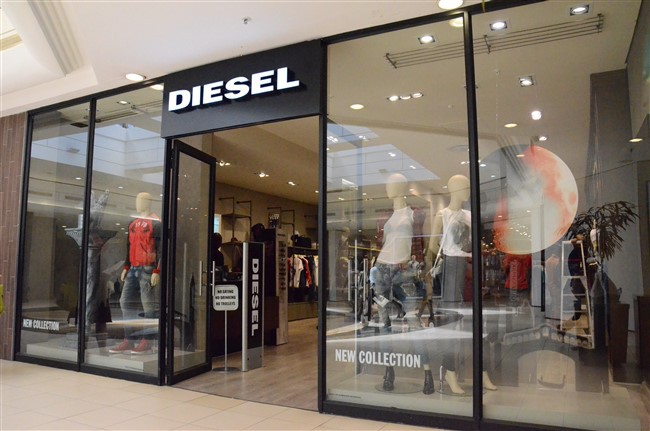
Diesel
Things Remembered
In February of 2019, Things Remembered filed for Chapter 11 bankruptcy as the company found itself reporting loss after loss each quarter. This once-popular destination for personalized keepsakes, wedding, and graduation gifts could not seem to compete with online stores such as Etsy and Wayfair. Though there are still 176 stores open due to a buyout from an investor, fingers crossed that Things Remembered does not become a company forgotten.
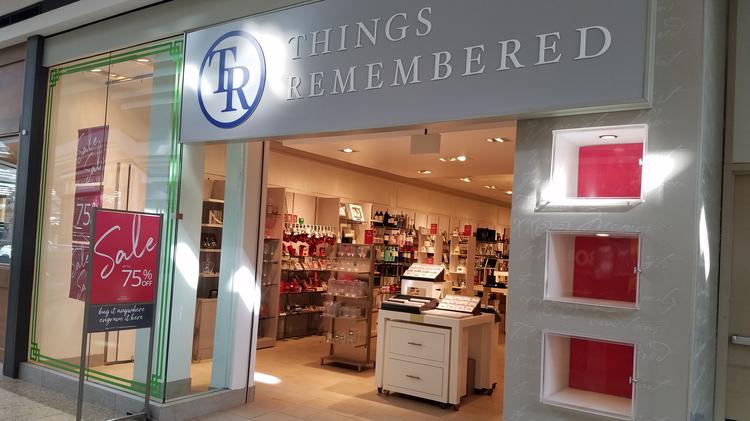
Things Remembered
Z Gallerie
Z Gallerie is a prime example of a business that refuses to grow with the times, in this case, offering consumers an option to shop online. In March of 2019, the high-end furniture company filed a Chapter 11 bankruptcy. To pay off some of its debt, the company closed 17 of its physical locations and was in the process of finding a buyer for the remaining assets. So far, no one has chosen to come to the aid of the Los Angeles business and time is ticking. If it is unable to find someone by the end of 2019, it could be forced to liquidate its assets.
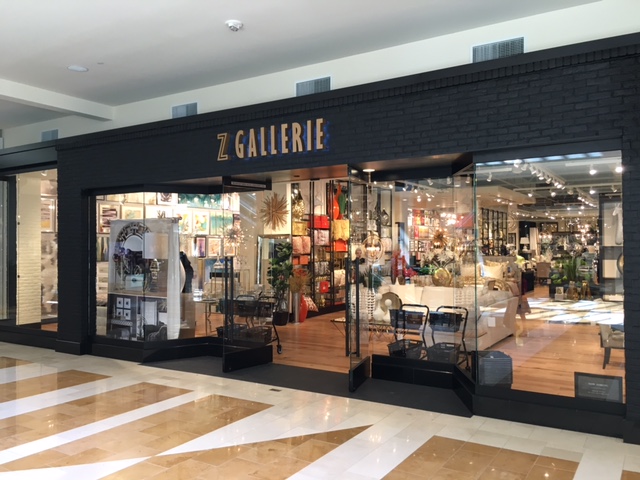
Z Gallerie
The Weinstein Company
Once considered one of the largest film studios in North America, The Weinstein Company found itself in financial trouble when one of the founders was caught in a sexual assault scandal by over 100 women. Not long after the scandal broke out, a potential half a billion-dollar buyout by an investor pulled out, resulting in the company filing for bankruptcy. A sad state of affairs considering the company had produced some major blockbusters such as Django Unchained, The King’s Speech, and Inglorious Bastards.
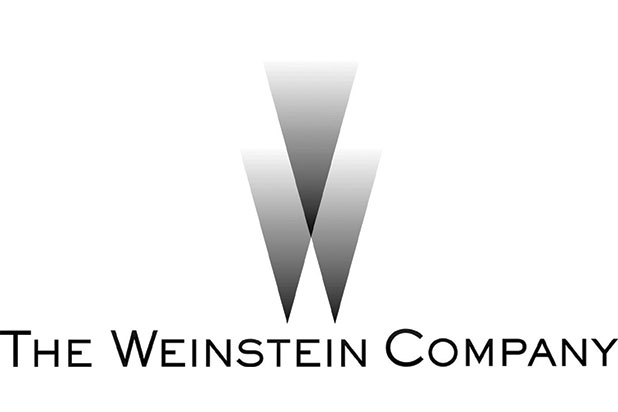
The Weinstein Company Logo
Notable Mention – CompUSA
Where did American computer nerds and geeks go to purchase software? They went to CompUSA. Originally named Soft Warehouse, CompUSA specialized in software and computers. However, the limited selection of products and services would result in the company having to close down its 126 stores. All that remains of this business is a website; however, it is only a matter of time before the site is shut down due to the competition of companies like Best Buy, Walmart, Dell, and Apple.
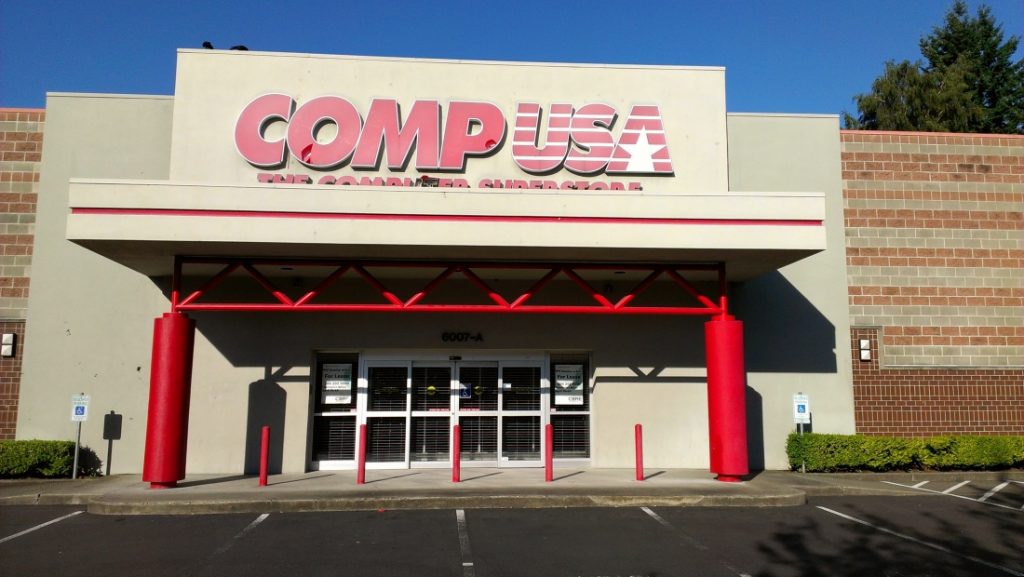
CompUSA
Nordstrom
If there is one brand that knows how to make a subtle escape, it is Nordstrom. This luxury department retailer, founded in 1901, is slowly shutting down its stores. There are presently 379 at last count, but it has been reporting losses in operations, assets, and equity. Specializing in everything from brand name clothing to furniture and jewelry, Nordstrom is struggling to compete with a market of shoppers who prefer to buy online. With 379 stores, who know when the company might fade away for good.
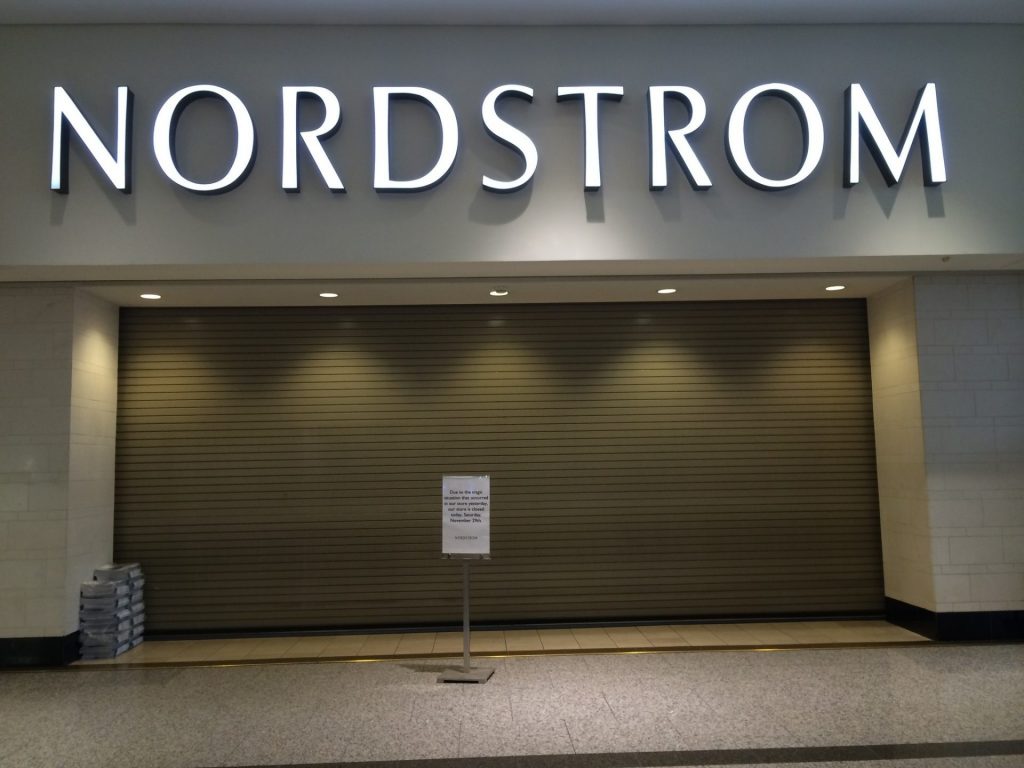
Nordstrom
Walmart
Don’t panic; this major discount department and a grocery store is not going away completely. Like most major department stores, technology and convenience are shaping the way people shop, and Walmart is not immune to these struggles. In 2019, Walmart had closed down 18 of its locations, which has left many without work. Though the company reported losses in income and equity, the company has to figure out how to stay competitive and relevant in a world currently dominated by Amazon.
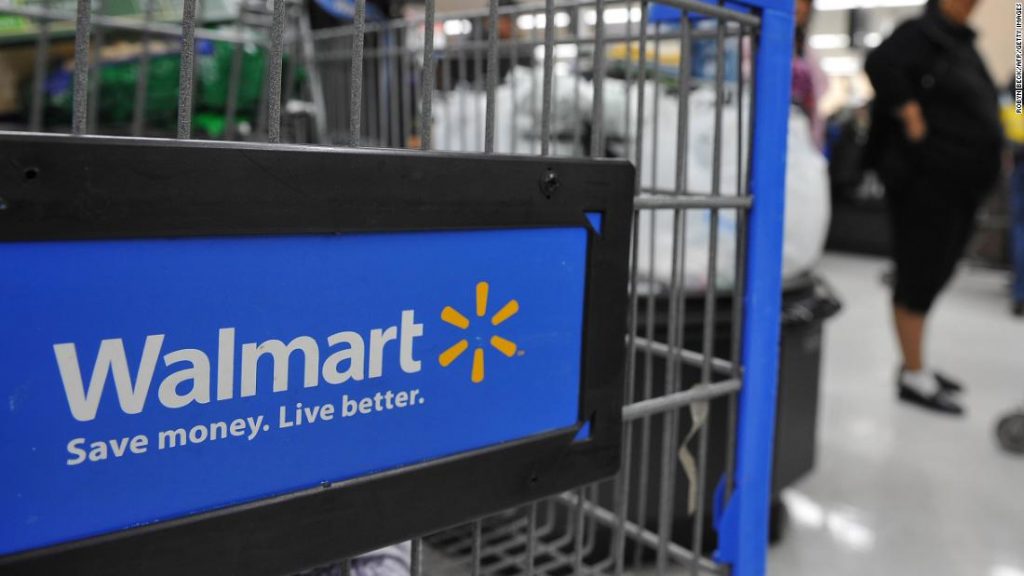
Walmart
Notable Mention – Discovery Channel Store
In 1995, the Discovery Channel Store doors opened across America. The shop sold educational games, gifts, books, and more. The concept of the store was to complement the company’s channel and the programs it showed. After a decade trying to continue the momentum from when it first opened to now, the company made the hard decision to shut down all 103 stores. Though the brand Discovery Channel Store is still around, the products can only be purchased online.
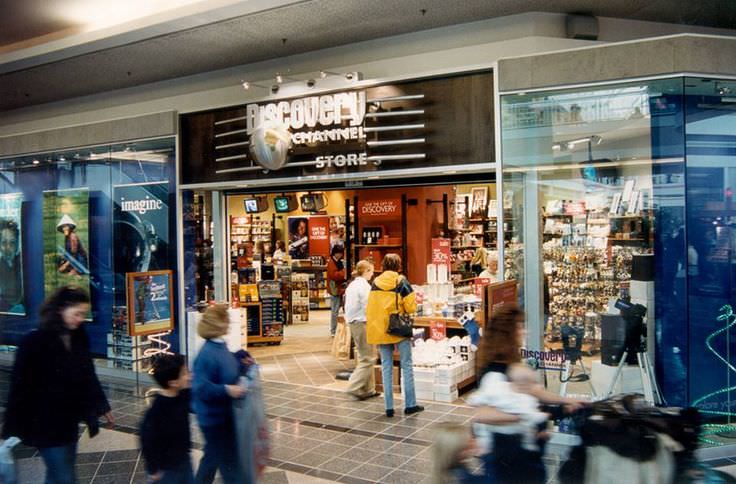
Discovery Channel Store
Kmart
In a world ruled by Amazon, Etsy, and Wayfair, it would come as no surprise that Kmart would find itself closing the doors. This department store retailer opened around the same time as Target in the 1960s. In 2018, the company had shut down over 150 stores. In its prime, Kmart had over 2,000 stores scattered throughout the US. Today, there are less than 200 stores open, and many of them are also starting to close down shop due to being unable to compete with online shopping and its direct opponent, Walmart.
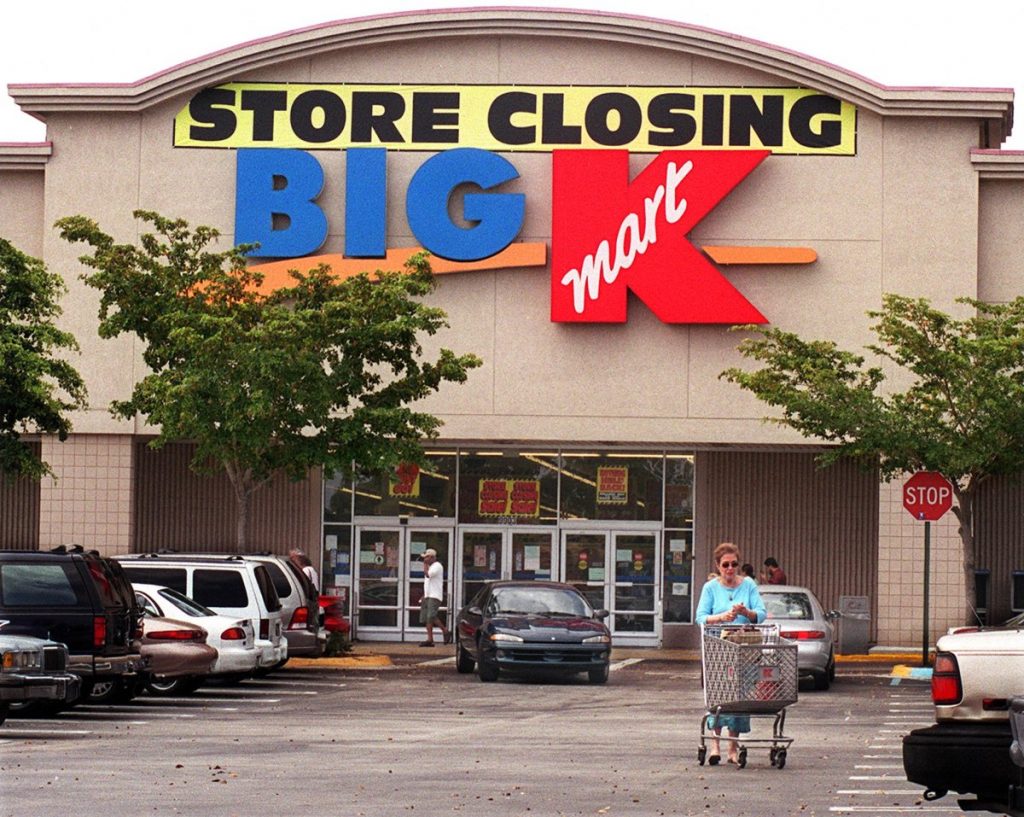
K-Mart Closing
Party City
What do you do when the world is currently facing its third helium shortage in 14 years? You say farewell to helium balloons and all things party, at least if you are Party City. The CEOs of Party City blame the shortage in helium as a factor as to why Party City has been closing down 10-15 stores a year. With approximately 900 stores still in business, Party City is looking to focus on its profitable stores and allow the ones who flounder to deflate.
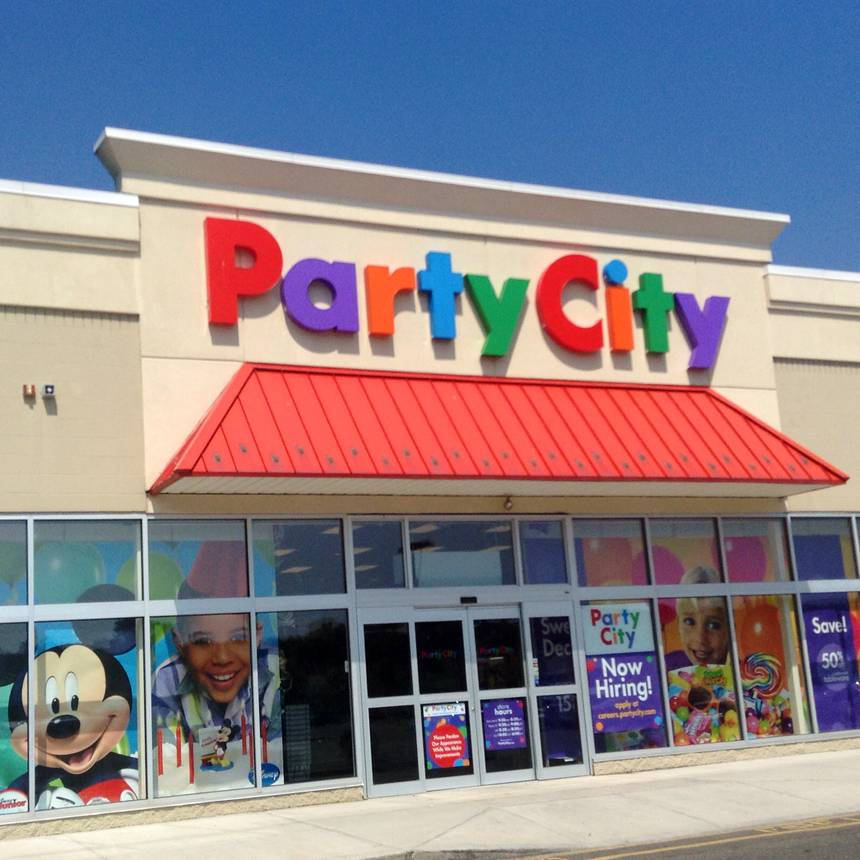
Party City
Forever 21
Say farewell to your 20’s plus one, as this retail clothing store is planning to shut down all the remaining stores by the end of the year. The company has been known to sell cheap yet fashionable clothing for teens and young adults. In a way, the lack of longevity and quality in its products could be a reason it is no longer in business as many more shoppers are looking to be much more environmentally and budget-conscious.
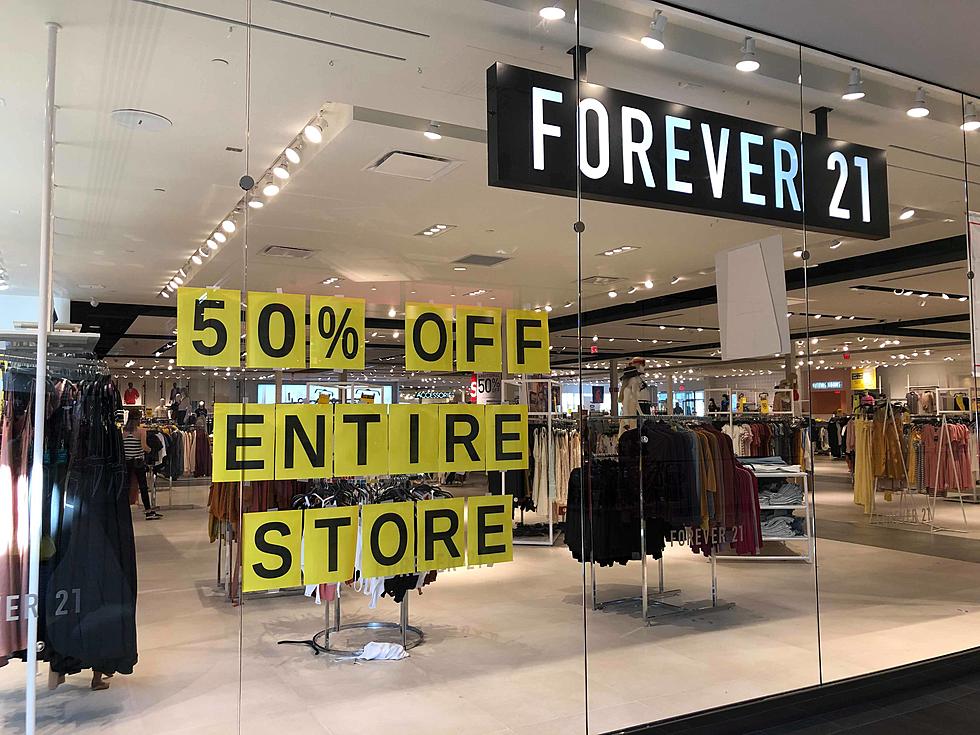
Forever 21
GameStop
With many consoles offering online purchasing for games, shops such as GameStop are struggling to stay relevant. At one-point, GameStop had over 5,700 locations scattered across 14 countries. In an attempt to avoid further closing of its physical shops, GameStop is looking to do more than sell video games and consoles, and it is also selling board games, memorabilia, and collector items. With losses reported in revenue, operations, and assets, it seems things may be game over for GameStop.
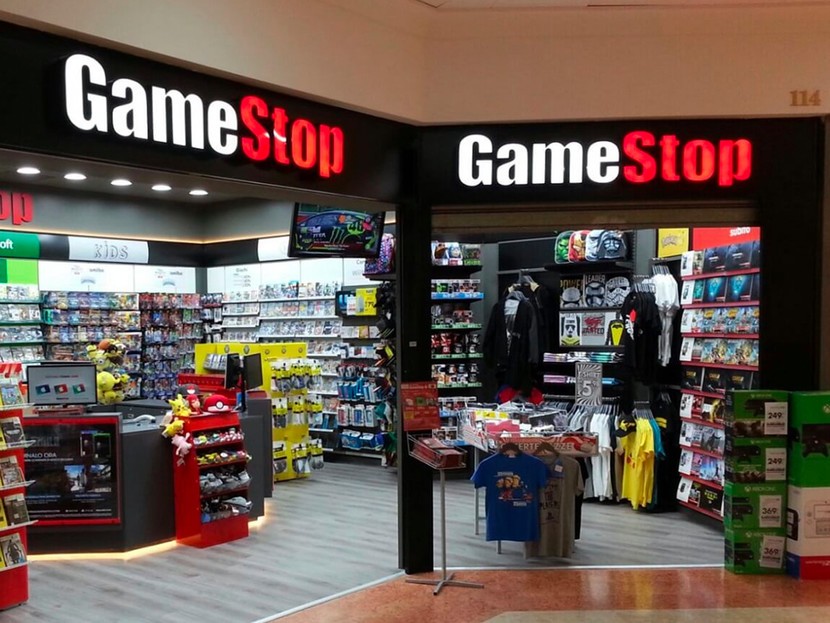
GameStop
Notable Mention – Tower Records
Remember buying your first vinyl? Cassette, or CD? Tower Records, which was created in the ’60s in Sacramento, California, found itself filing for bankruptcy in 2004. By 2006 all of Tower Records’ assets were liquidated. Though it tried to sell more than just music, it could not compete with the online downloading from platforms such as Kazzaa, Limewire, and eventually iTunes. Tower Records just took a tumble and could not compete.
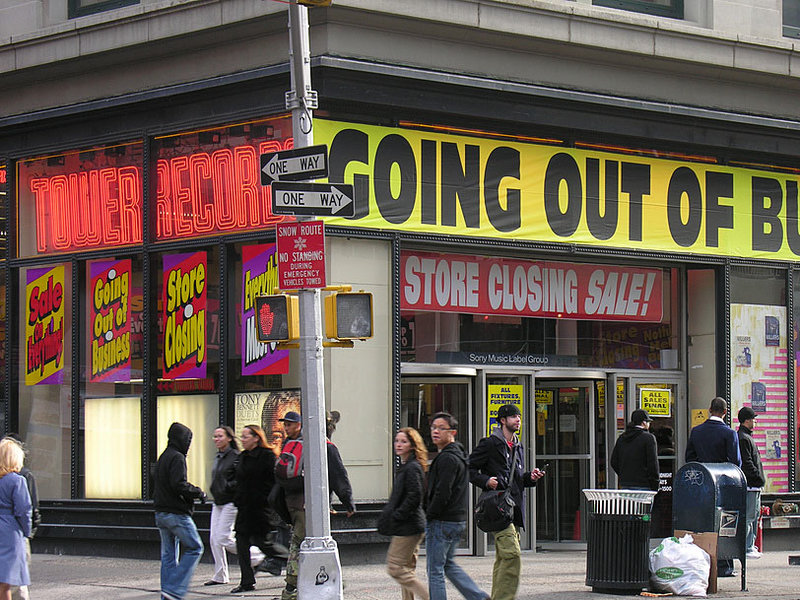
Tower Records
Lowe’s
Lowe’s is a home improvement retailer with 2,000 stores between the US and Canada. With the company citing losses, Lowe’s decided to shut down 51 stores in 2019. Company CEOs and executives are looking at ways of maintaining the existing shop while shutting down money pitfall locations. Though home renovations never go out of style, Lowe’s is attempting to restructure itself to avoid having to file for bankruptcy.
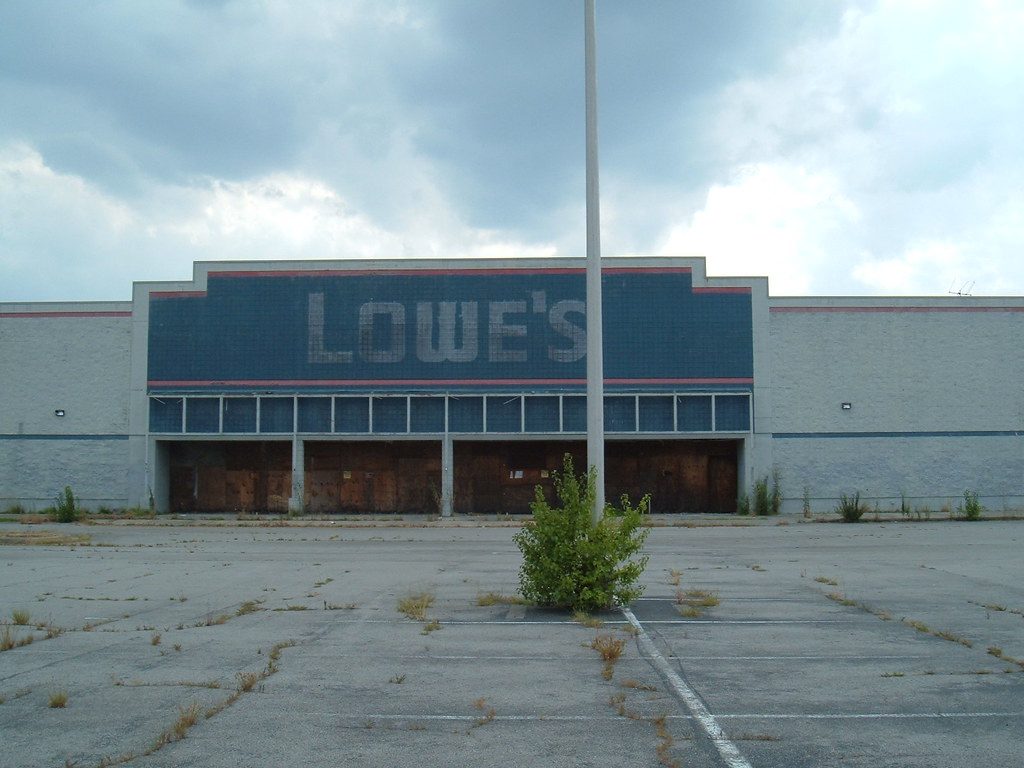
Lowe’s Closed
Michael Kors
A high-end brand that specializes in handbags, watches, and shoes, Michael Kors is noting losses in the billions. As of 2015, the brand had 550 standalone stores, with products being sold in over 1500 stores around the world. Unfortunately, it seems luxury brand name goods are no longer a trend – and consumers aren’t willing to spend the hundreds if not thousands on a purse or watch. If Michael Kors does not adjust its marketing and business strategy, we may find it being a has-been in fashion
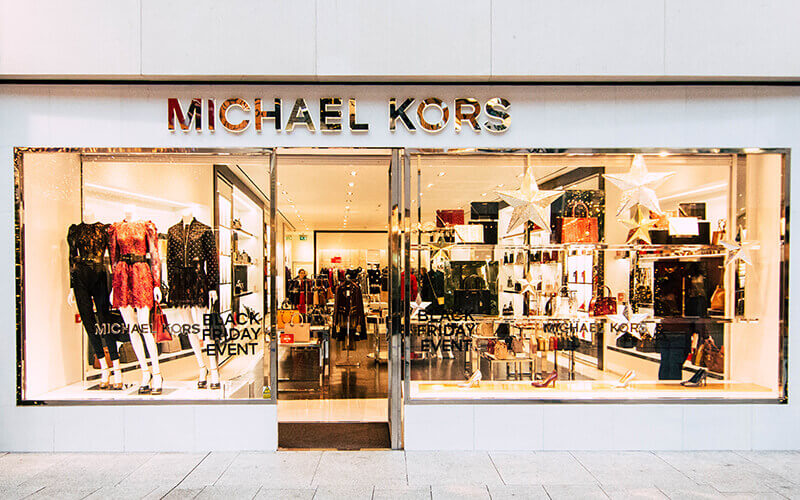
Michael Kors
GoPro
The original action camera, GoPro, entered and created a market in which is struggling to thrive in. While other brands have attempted to achieve the same success in action cameras like the GoPro, none have yet to make the same quality and consumer attention. Unlike the iPhone, which can release new versions of its last edition, GoPro is struggling to develop and release a product that can bring it back to its glory days.
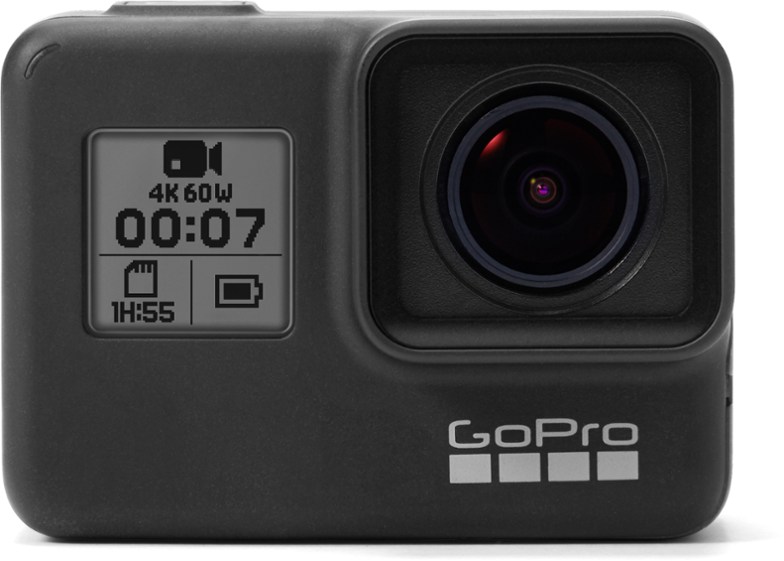
GoPro
Notable Mention – Warner Bros. Studio Store
Similar to the Discovery Channel Store, Warner Bros. Studio Store attempted to make its product accessible for all. In its glory days, Warner Bros. Studio Store had 130 flagship locations. When a merger between AOL and Warner was made, the store found its faith in limbo. Late 2001, the leading shop located at New York’s Fifth Avenue was closed, and soon, other stores in other major cities followed suit. The only store that exists today is one that is located in China.
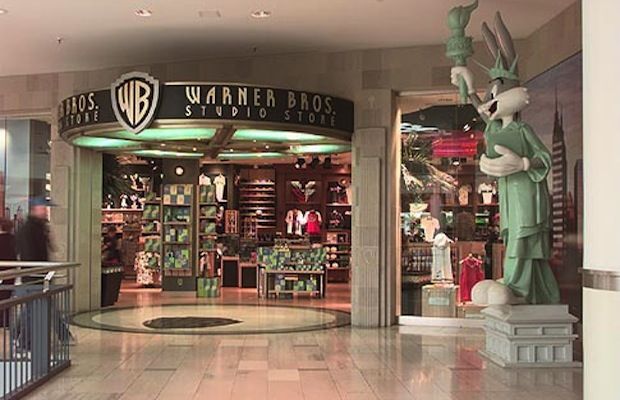
Warner Bros. Studio Store
Southeastern Grocers
You may be scratching your head and wondering which grocery store this is; however, Southeastern Grocers is not a store name; it’s a business name that houses an array of American grocery chains. Have you heard of Harvey’s, Winn-Dixie, and Fresco y Mas? These are the groceries that fall under Southeastern. How can a grocery store be on the brink of bankruptcy? Southeastern Grocer presently has a growing billion-dollar debt, which means bankruptcy is not far behind.
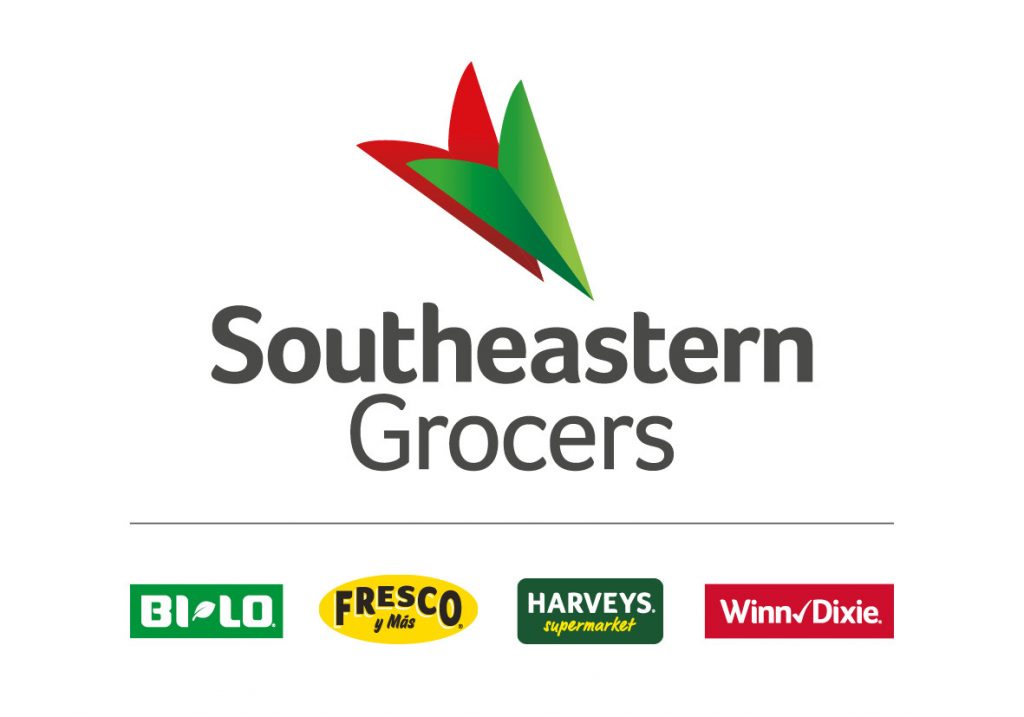
Southeastern Grocers
Fitbit
Fitbit created a market and an interest in wearable fitness technology. For a while, it dominated that market by offering consumers options in their products. From bracelets for the highly active to bands for those looking to stay fashionable, Fitbit seemed to own the market until significant companies like Samsung and Apple began to come out with their wearable fitness products. The moment the Apple Watch and Samsung Fitness bands were released, Fitbit struggled to stay competitive and cutting edge in a market they created.

Fitbit Products
Notable Mention – Teavana
This American tea company was created in 1997 in Atlanta, Georgia. Teavana specializes in exotic and non-traditional teas. In 2012, Teavana was bought out by Starbucks for a staggering $620 million. In 2018 the remaining standalone Teavana shops were closed, leaving consumers to rely on Starbucks when purchasing Teavana products. Though the company did not file for bankruptcy, it seemed that Starbucks came in the nick of time to ensure it would never have to get to that point.

Teavana
Shopko
This retail chain store based in Wisconsin found itself closing down all stores when it filed for a Chapter 11 bankruptcy early in 2019. The store sold everything from household products to clothing and furniture. In some Shopko locations, they offered an optometrist. Just before Christmas of 2018, management at Shopko confirmed the closure of the remaining 39 stores. Though the company filed for bankruptcy, the media would disclose they had an outstanding debt of $10 billion dollars.
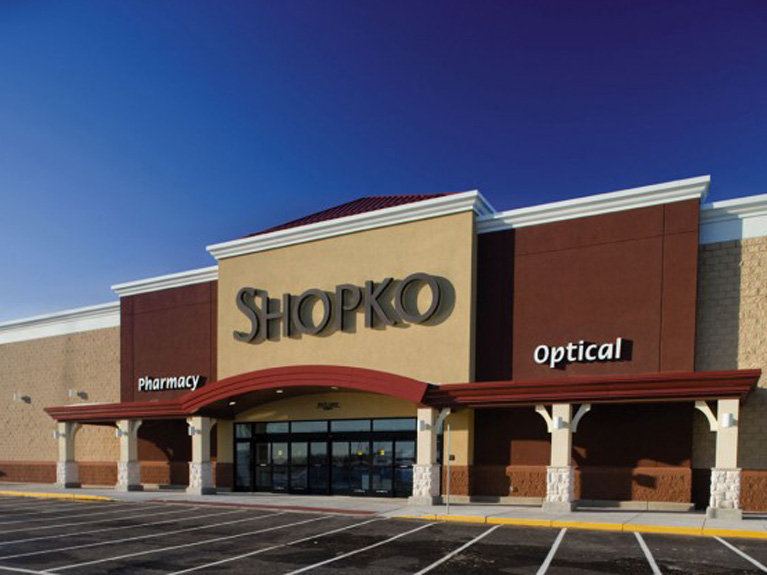
Shopko
Barneys New York
Even major retail brands and companies feel the pinch when it comes to skyrocketing rent – at least this was the case for Barneys New York. August of 2019, the company filed for bankruptcy and put itself up for sale in an attempt to find a buyer to help refinance the company. This high-end retailer not only blamed rent but the lack of shoppers – it seems even New York is struggling with the trend of online shopping.
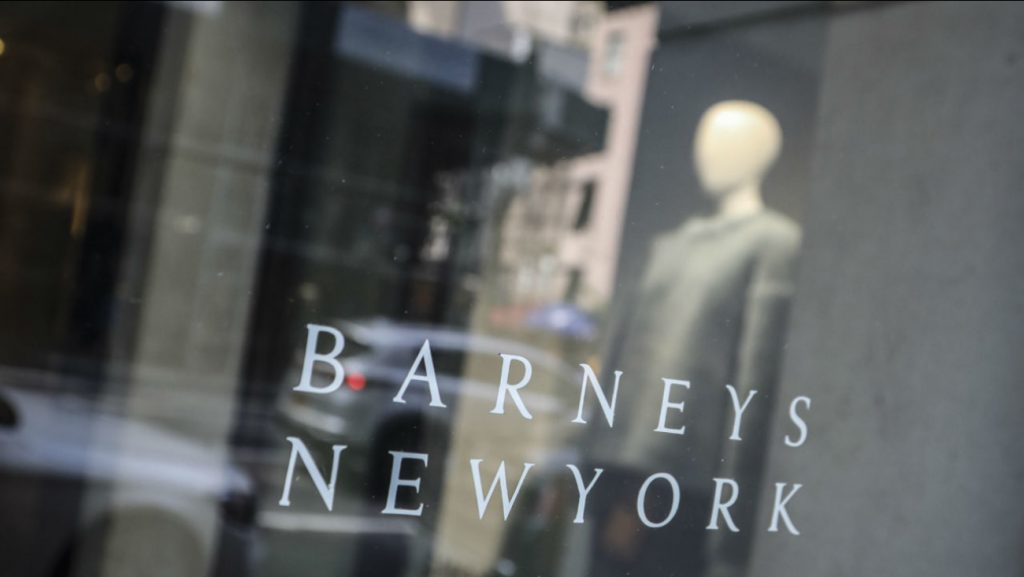
Barneys New York







